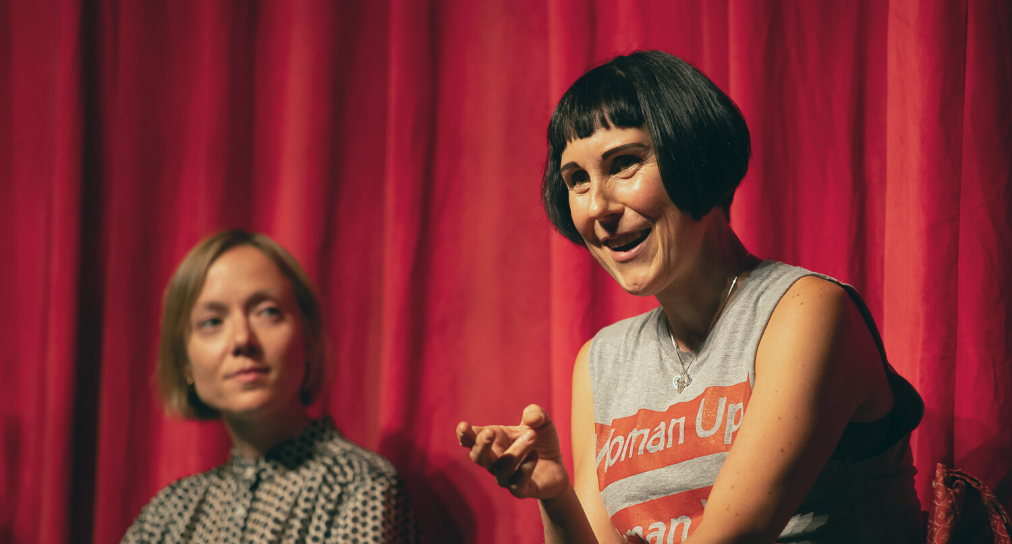
Sonya joined Clean Break as a Member in 2011. She wrote a short play for the company in 2013, HOURS TIL MIDNIGHT, and was given a full length commission the same year. She performed in MEAL TICKET for Clean Break at Latitude Festival in 2014 and her play, BLIS-TA, is currently being made into an audio drama.
Sonya was such an inspiration to all of us at Clean Break. Beyond her brilliance as a writer, Sonya’s kindness, good humour and compassion touched many of us and she became a vital part of the Clean Break family – for staff, Members, Board and artists. We know that the friendships she formed in those early days of joining the company, walking alongside other women in recovery, sustained her and many of her peers over the past decade. She showed us all how to heal and affirmed the power of theatre and our imaginations in this process.
Even throughout her illness, Sonya had a resolute compassion for others – she wrote prolifically about women in prison during lockdown, wanting their stories to be heard and seen. To this end she was an amazing advocate for widening representation in theatre – and ensuring that stories from the margins are propelled centre stage. We will continue this work with Sonya in our hearts.
She will be hugely missed.
Our thoughts are with all those closest to her, especially with her son Fred, at this painful time.
Rest in Peace Sonya
.png)
.png)
.png)
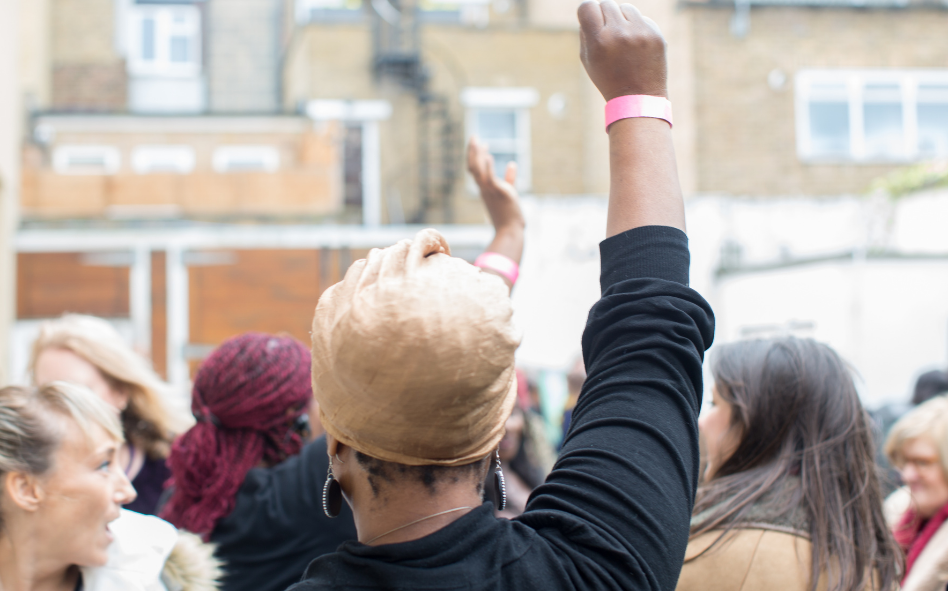
Can you tell us a little about what you did before Clean Break?
I’ve always been driven to work with people who are without privilege and who live in places where the resources are quite deprived. I feel the injustice and have always wanted to help those who are vulnerable and might need assistance, whether that’s been in the community or in schools.
Immediately before I came to Clean Break, I was working as the education lead for a youth offending service, trying to keep young black boys (in the main) from being excluded from school.
How did you hear about Clean Break and when did you start working with us?
I saw an advert for the role of Student Support Manager in The Guardian when I was on maternity leave and applied, but it was just too soon - my baby was still so young - so I retracted my application. However, they didn't appoint, and I got a call a few months later asking me whether I was still interested.
I did some checking and spoke to a friend who used to be head of arts and leisure at the Council and she said Clean Break was absolutely brilliant and to go for it because it was the perfect job for me…that was 17 years ago!
How did you feel when you first starting visiting prison?
What really struck me was the state of them; physically how repulsive and degrading and awful they were, the number of rats, it was disgusting and inhuman.
There’s something about seeing a woman in prison – an older woman, a pregnant women - it's just another level of everything, compassion, embarrassment for us that as a society this is what we do that, you know, feeling their shame but also seeing their joy that someone's come in, who hasn't got keys, and who's coming to talk to them, to work with them, to laugh with them.
But it was all those hurtful stories about being strip searched with male officers present, being told they have to take a shower, to have a pregnancy test, it was all those awful unimaginable things that really struck me and stayed with me irrespective of the race of the woman, it was a woman being treated like that.
When I say that, I don't want to just say that women are victims, there were real moments in those prisons where I saw joy, I saw nurturing, I saw caring, looking out for each other, I also saw a lot of resilience, a lot of togetherness, a lot of sisterhood in there. I saw moments where I thought my God, I'm in awe of you because even in this environment you have managed to create a maternal space.
Can you speak about some of the pivotal moments and reflections you have on the Criminal Justice System over the past 17 years?
I think one of the one of the biggest moments was Baroness Corston’s report in 2007 when there was a political will to show what was happening in women's prisons. She did her homework, she spoke to women in prison, and her recommendations were completely on pointe.
Another pivotal moment was the impact felt by the introduction of trauma informed work and organisational gender responsiveness by Stephanie Covington in 2014. Although representation wasn’t being addressed at the time, Stephanie also recognised that racism (in itself) is traumatic so when you think of the experience of imprisonment being traumatic, these two traumas are compounded for those women of colour who are in prison. They then have the debilitating lack of opportunity when they get out, so they carry that trauma with them throughout their journey.
There were more women’s prisons back when I started working at Clean Break, but even though we have less now, it is so stark that there are over 2,000 more women in prison. During this time, I’ve seen the decimation of the probation services, the rise in short term sentencing and the disregard for many of the recommendations from David Lammy and Baroness Corston.
Did you see systemic racism in prison?
During my visits, many Black and mixed-race women were telling me how differently they were treated. How they don't get the privileges, “I'm often being told I haven’t done that right even if I was halfway to earning it”. The privileges would be withdrawn. They would never get any of the good jobs (like gardening) which would allow them out into the fresh air. They would have their leave removed so they couldn’t see their children or wouldn’t be given release on temporary licence. These are things that were subjective to the senior officer and then backed up by the governor. It’s all about power. I met one or two people in prison I thought “you're an amazing prison officer,” and then there were many more that I literally shuddered at the thought of them having any power over anyone except themselves.
What these women were telling me was borne out by David Lammy’s Independent Review.
I don't really feel like the situation has changed at all; that's not what I'm hearing from the women who have done projects with us recently. I mean there's no more strip searches and things like that because of Baroness Corston and hopefully its more trauma informed, but we're still seeing the deaths in custody, we’re still seeing things that show there's a lot of work to be done. Prisons are not a place to make money from and once we start looking for profit from those places there will be a cost, but it will be a human cost!
Can you tell us about any of the women you have met during your time at Clean Break (and how racism affected their lives)?
I have three short stories about women who were innocent.
I was really struck when I met a young Black woman back in 2004. She was 23, had a partner – who hadn’t been living with her – but moved in when she became pregnant. Within a couple of months he had changed, no longer the man she had been romantically in love with. Despite her objections, he brought Class A drugs into her home, she couldn't do anything to stop him. Her family lived many miles away and she felt that by telling them she would be putting them at risk. The police raided the house and found the drugs. He was already in trouble and had other charges against him, so he told her that she needed to take the rap for him. He threatened her and the baby so in the end she decided to do what he said. They imprisoned her at five months pregnant, with a completely clean record, and they didn't even question as to whether the drugs could have been her partners. I asked why she thought this had happened, and she said she thought that “they were just happy to get someone.”
She had the baby in prison, and they handcuffed her all the way to the maternity ward, she was in so much pain and distress and yet still they restrained her. That baby remained on the child protection register until she was 18 even though her mother never took a drug in her life and was innocent of the crime. Her world was turned upside down, but she showed enormous strength and resilience and she is doing incredibly well and is now helping other people to turn their lives around
I met another woman in prison, she was older, in her early 50s. She had been a carer for 28 years, devoutly religious. She was part of a team caring for someone in their home when money went missing. There was no evidence that she (or any of her colleagues) had taken the money and when I asked why she thought the finger was pointed at her, she said “I can only think it's because I'm Black”. She was arrested, went to court thinking it would be thrown out, but instead got sentenced for six months.
The sum of money was £10! That floored me, it floored me! She is one of the calmest women I've ever met, she just said “I'm going to be praying, you know I'm sure they're going to find out that I didn't do it, I’m not a dishonest person I would never do that.”
She was a really positive influence on the other women in prison, praying with them, giving them recipes. She was released after two and a half months, spent some time with us at Clean Break and then moved to the Midlands where she could start again to rebuild her life and her reputation.
The third story is about a white woman who was also really young, she was doing an MA in criminology. Her boyfriend didn’t live with her, but without telling her, had stashed Class A drugs at her home because it was a safe place to hide them. He got arrested whilst out with friends and the police raided his flat, and on finding nothing, raided the home of his girlfriend. They found the drugs and questioned her, and although her boyfriend confessed that she knew nothing about them and took the full blame, they charged her, she went to court and she was sentenced to 20 months in prison.
She said the judge said to her that he “wants the full weight of the law to fall on top of her because there is no way a middle class, intelligent young woman like her should be going out with people like him, people like that.” She said the only word he didn’t say was white, she said he didn't need to. Her boyfriend was Black, he also went down, they still charged him, but it just wasn't enough they wanted her to be punished as well, to see the consequences of association.
These are just three stories, there were loads of women I talked to who said that “I'm innocent, I haven't done anything, I've been coerced!’ It's interesting to think how those cases would be looked at now, with a different pair of eyes but who would look back at these stories now and not say that that's a form of injustice?
What does Black History Month mean to you?
Black History Month (laughs) I do have to smile, I mean it's one month to celebrate good food, rich culture, fresh new ideas and I suppose it's also a chance to see many more black faces, new and old on our screens.
I look forward to hearing all the Members ‘sharings’ because there are people who have a myriad of different experiences that are connected to me. It’s an explosion of form, they are full of such rebellion and resistance they are emotive. I can feel quite sad but equally uplifted and empowered there's just more colour on the screen, things just get more colourful, noisier, vibrant and lively!
I'm joyful too because one of the biggest tools against oppression and suppression is humour and you know that's to be found in loads of places but one of the times I see it more is during Black History Month.
But then I think it's all crammed into one month! I mean we're not going to go and hibernate for 11 months, we need to be seen, we are a part of everyday that is the truth. We need to be seen and we need to be heard. I have this analogy which actually was part of a proverb someone told me and it's a bit like during the month we can sing and dance, do whatever with lots of pride and then during the other 11 months we've still got to dance but we’ve got to watch our side and what that means to me is in that month we're out there but when I say dance it means we still have to live, it’s a metaphor for living but we’ve got to watch our side we’ve got to be much more careful those other 11 months.
It’s important that people don't feel that they've been given a month to say every single thing that happens to them or what they'd like to see across the year and then are told to shut up.
What are your hopes for the future?
That’s a big question! I have so many so I’m going to break it down into a few bullet points!
And finally, I would just like to give thanks for all our wonderful powerful talented community of women, our Members, staff, artists and volunteers – and my last thoughts are for all our continued health!
Photography: All The Lights Are On, Tracey Anderson
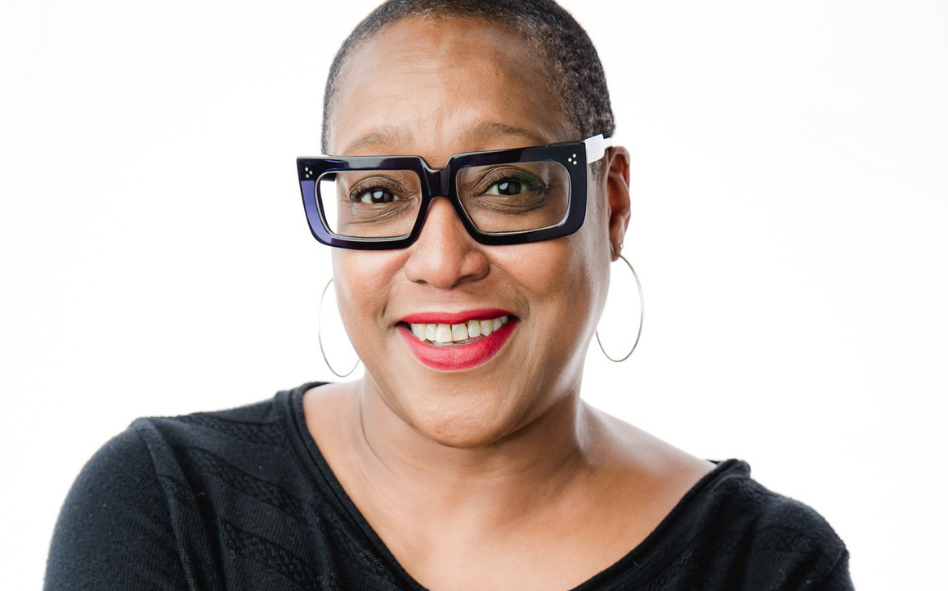
Paulette Randell MBE is one of the most influential women in theatre and television. She has directed at many of the UK's leading theatres, was the first Black woman to direct a dramatic play on the West End, was the Artistic Director of Talawa Theatre Company and is behind many of your favourite shows on TV. Her path through the industry is also closely linked with Clean Break having met one of Clean Break's founders at drama school. For the company, she then went on to write 24% in 1991, direct one of Clean Break's seminal plays Head-rot Holiday by Sarah Daniels and was Chair of the Board of Trustees.
As part of Clean Break's Black History Month celebrations we invited Paulette to have a conversation with our Development & Members Assistant, Demi Wilson-Smith. The basis of their conversation was 24%, inspired by the percentage of Black women who made up the prison system in 1991 and focusing on the impact the criminal justice system had on young Black women. With the impact of that play as a spring board, in this interview they discuss intergenerational activism, culture, being Black women in theatre, the criminal justice system, the future for Black voices and the search for Paulette's missing play.
#FindPaulettesPlay
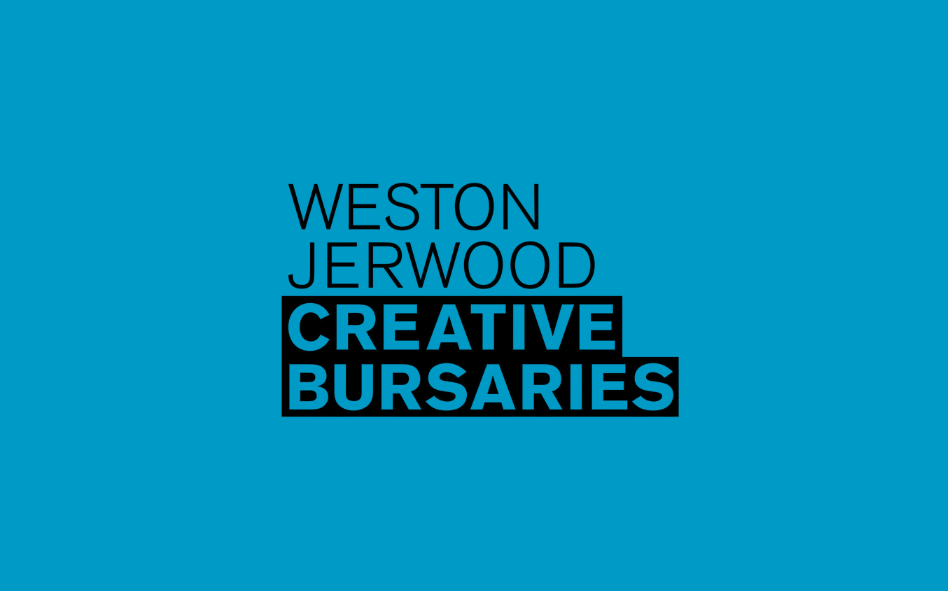
Clean Break is to host a Weston Jerwood Creative Bursaries Fellow as part of a programme to get more people from low socio-economic backgrounds into cultural careers. Across the UK there will be 50 exciting opportunities to develop a career in the arts, with each role playing an important part in the host organisation. Clean Break is welcoming applications for the role of Participation Associate, which will involve working across Clean Break’s Members programme, Young Artist Development Programme and Prison residencies.
Even before the pandemic wreaked havoc on career prospects in the arts, those from middle-class backgrounds were 2.5 times more likely to end up in creative occupations than their working-class peers. This is a situation which has not improved since records began in 2014. Social mobility is a greater issue in the cultural sector and wider creative industries than across the economy as a whole. The wider creative industries have created over 300,000 jobs over the past five years, yet the number of creative workers from working-class backgrounds has increased by just 33,000. Just as with the impact of the 2008 financial crisis, it is expected that those who are already finding it difficult to make their way in the arts will be the worst hit by the impact of covid-19.
The Weston Jerwood Creative Bursaries aim to redress the balance by funding 50 paid, year-long artistic and creative Fellowships as well as an organisational development programme run by people make it work to embed inclusive practices for the host organisation, with three members of the host team taking part, including a board member and a senior executive.
This is the fourth edition of the programme, which has been running for over 10 years and has 125 alumni to date, many of whom have forged successful careers. This edition of WJCB is the largest yet, with support from Arts Council England’s Transforming Leadership Programme, Garfield Weston Foundation, Art Fund, Arts Council of Wales, Creative Scotland, and PRS Foundation.
Click here to find out more about the programme
Click here to find out more about the thinking behind the programme
Click here to see which other organisations are involved
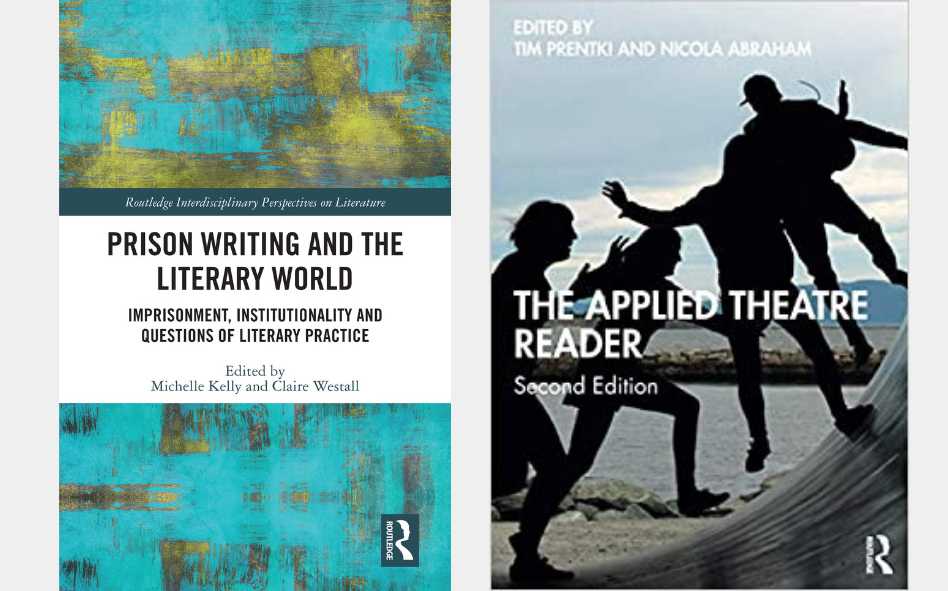
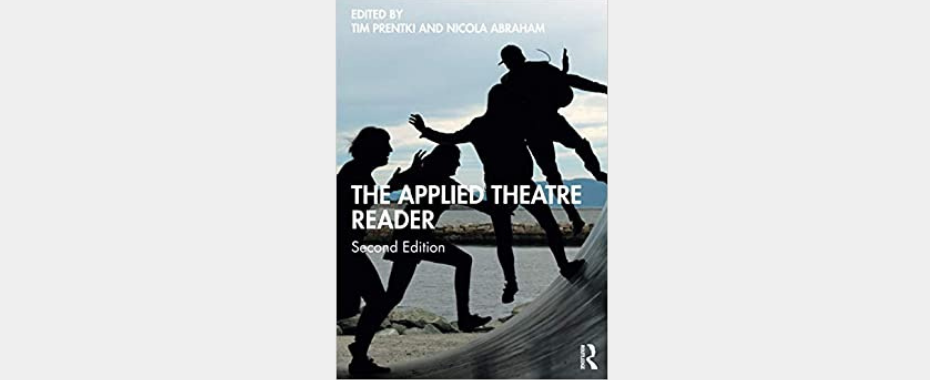
The Applied Theatre Reader brings together new case studies of practice by leading practitioners in Applied Theatre and academics in the field and beyond.
This new edition covers the breadth of applied theatre practice with essays on playback theatre, digital technology, work with indigenous practitioners, inter-generational practice and school projects. Contributors come from across the UK and world including South America, Australia and New Zealand.
Clean Break was asked to contribute a chapter and chose to focus on the ethics of representation when making public facing work about the experiences of women in prison. Joint Artistic Director, Anna Herrmann worked with Prof Caoimhe McAvinchey, who has been a long-term supporter and researcher of Clean Break, on the chapter. They brought the creators of Inside Bitch on board to talk about the process of making the play as collaborators—some of whom had lived experience of prison and others who did not.
In the article you’ll hear from Lucy Edkins, Jennifer Joseph, TerriAnn Cousins, Jade Small, Deborah Pearson and Stacey Gregg about the project alongside critical writing about Clean Break’s practice.
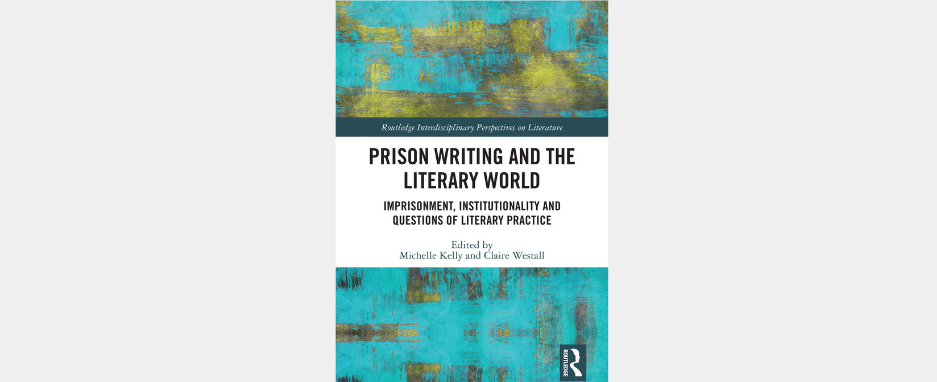
Clean Break has two articles focusing on its work in Prison Writing and the Literary World: Imprisonment, Institutionality and Questions of Literary Practice. The book tackles international prison writing and writing about imprisonment from a literary and critical perspective. It offers scholarly essays exploring prison writing in relation to wartime internment, political imprisonment, resistance and independence creation, regimes of terror, and personal narratives of development and awakening that grapple with race, class and gender.
This first essay about Clean Break is by Prof Caoimhe McAvinchy from Queen Mary University on Clean Break’s Theatre of Necessity. The second is by Joint Artistic Director, Anna Herrmann; Playwright, Deborah Bruce; and Clean Break Member, Clare Barstow who participated in Clean Break’s participated in many theatre-writing workshops in prison. This article focuses on Clean Break’s theatre-writing workshops in prisons, focusing on the aims and challenges of working in a prison setting. The different perspectives in the article aim to heighten the understanding of the transformative power of writing in prison settings. It showcases the healthy and nurturing culture of Clean Break’s work where women are valued for what they bring, where they are inspired with hope and creativity, and are treated with respect.
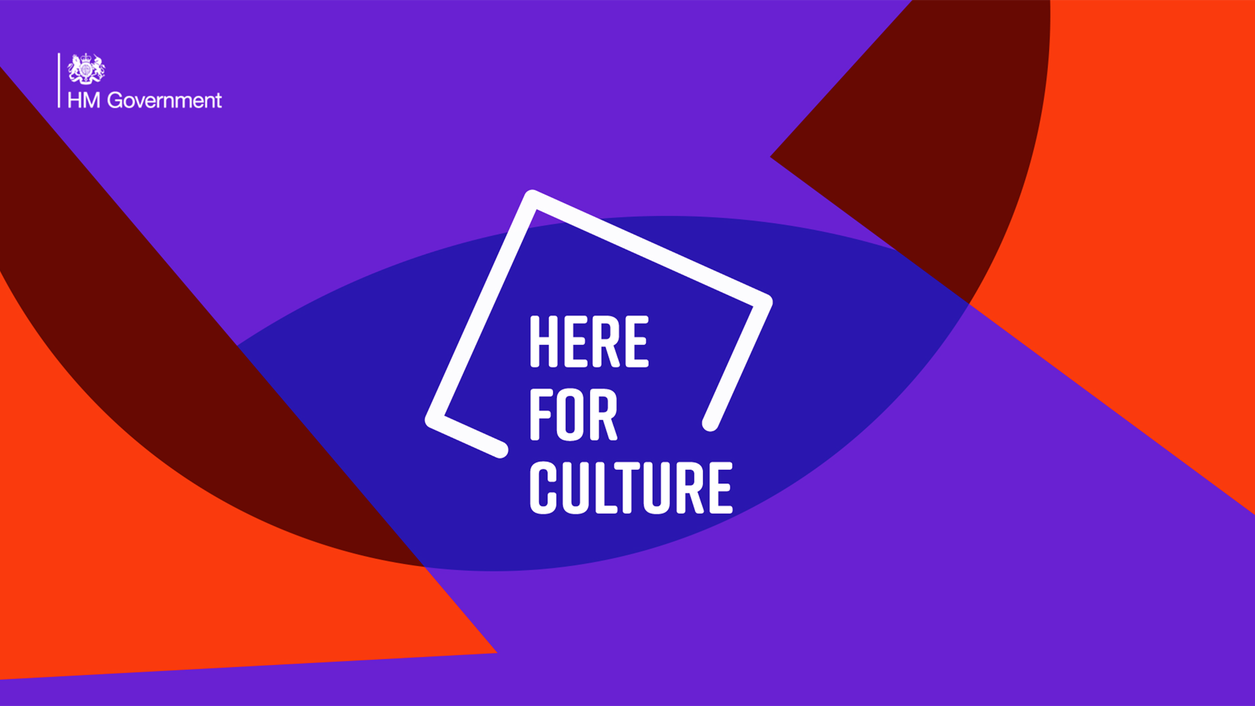
We are incredibly grateful to have received a lifeline grant from Government’s £1.57bn Culture Recovery Fund to help face the challenges of the coronavirus pandemic and to ensure we have a sustainable future.
This grant is crucial to our survival and will enable us to continue to support freelancers, artists and our Members, women with experience of the criminal justice system or who are at risk of entering it. We are committed to supporting those who have been deeply impacted by the pandemic by continuing to practice and deliver our work.
Clean Break is one of 1,385 cultural and creative organisations across the country receiving urgently needed support. £257 million of investment has been announced today as part of the very first round of the Culture Recovery Fund grants programme being administered by Arts Council England. Further rounds of funding in the cultural and heritage sector are due to be announced over the coming weeks.
Culture Secretary Oliver Dowden said:
“This funding is a vital boost for the theatres, music venues, museums and cultural organisations that form the soul of our nation. It will protect these special places, save jobs and help the culture sector’s recovery.
“These places and projects are cultural beacons the length and breadth of the country. This unprecedented investment in the arts is proof this government is here for culture, with further support to come in the days and weeks ahead so that the culture sector can bounce back strongly.”
Chair, Arts Council England, Sir Nicholas Serota, said:
“Theatres, museums, galleries, dance companies and music venues bring joy to people and life to our cities, towns and villages. This life-changing funding will save thousands of cultural spaces loved by local communities and international audiences. Further funding is still to be announced and we are working hard to support our sector during these challenging times.”
Leadership Team, Erin Gavaghan, Anna Herrmann and Róisín McBrinn, said:
“There is a long road ahead for all of us, but this support gives us hope. We thank everyone who has supported Clean Break so far this year; we are here and continue to be here because of you.”
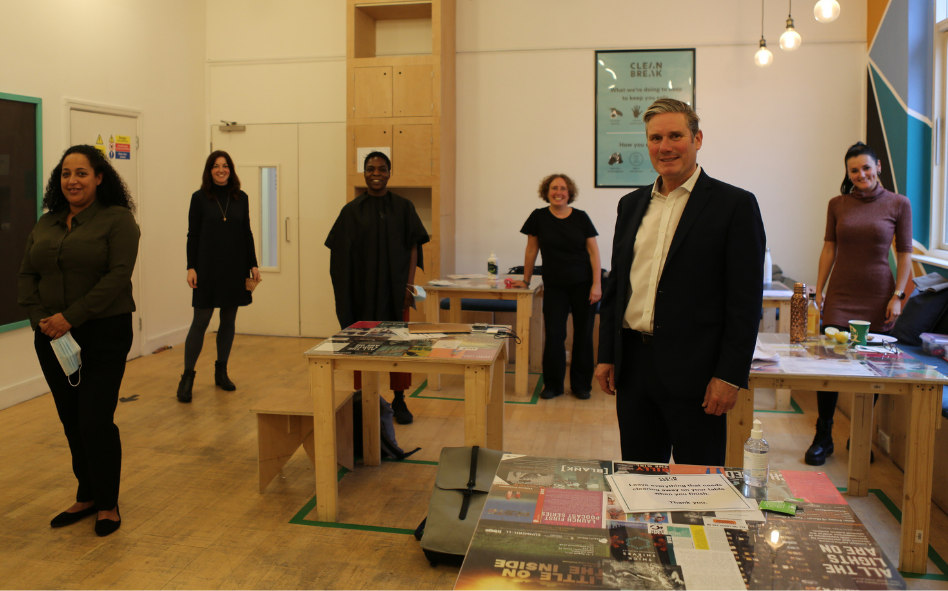
Today, Keir Starmer, Leader of the Labour Party and local MP for Holborn & St Pancras, visited Clean Break to celebrate the re-opening of our building for our Members. Located in Keir’s constituency, our building is a vital centre for support, connection and creativity for the vulnerable women with whom we work.
During his visit, Keir met Joint Artistic Directors Anna Herrmann and Róisín McBrinn and watched Clean Break Members Jade, Funke and Posy, filming Sweatbox, a play whose nationwide tour was cancelled due to the pandemic.
Keir Starmer: “It is great to be at Clean Break to see them welcome back their Members.
“Much of the focus on the arts during this pandemic has rightly been on the huge financial challenges facing the sector. It’s also important to remember the huge impact that this period has had on people’s wellbeing, and I know that Clean Break and other theatre companies have been very eager to get started again.
“I am very glad that Clean Break have been able to re-open safely so they can continue with their important work.”
Clean Break Member: "It's been more than 6 months since lockdown and I was very worried that maybe I wouldn’t be able to go out again... but today when I came back to Clean Break I kind of felt like, oh yeah I can do this. It’s given me hope."
Róisín McBrinn and Anna Herrmann, Joint Artistic Directors: “Lockdown has been particularly trying for our Members, many of whom have been impacted by the negative effects of poor mental health, isolation, impoverishment and a lack of access to technology. Our priority has been to respond to our Members’ needs, with care packages, weekly phone calls, and online theatre programmes. But they deeply missed the lifeline that Clean Break provides. It is so important to us all to be back in the building together and we are thrilled Keir could join us at this time.”
Click here to read the full press release.
Photo credit: Olivia Chancellor
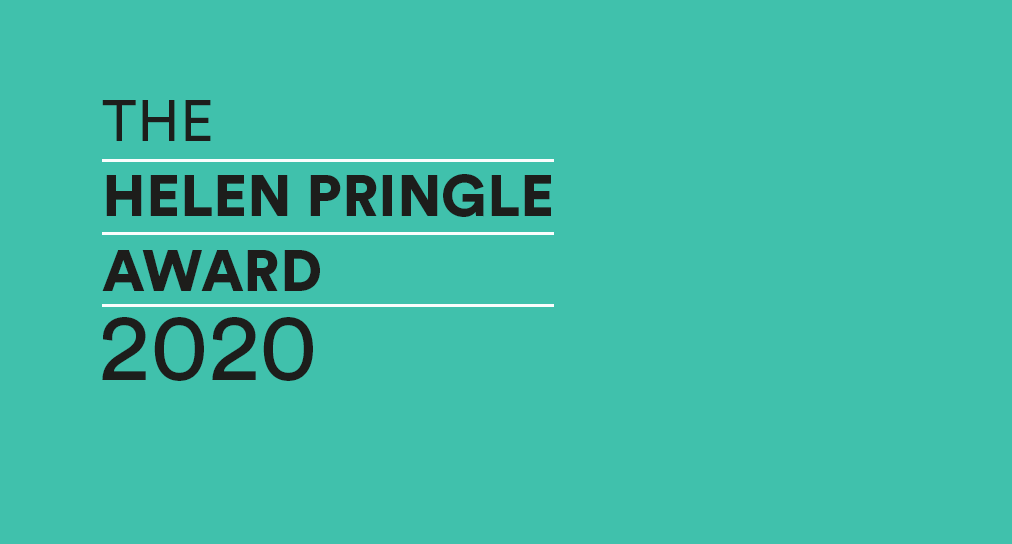
We had a number of strong applications, and both Kei and Esther showed such passion and commitment to pursuing a career in theatre and the arts, demonstrating clearly how this Award will support them with their next steps, that we decided to make them joint winners! We wish them all the best with their chosen studies and look forward to seeing them develop as artists with support from their mentors across the year.
Esther and Kei will both be taking up further education courses with the bursary, established to continue Helen’s profound belief that women with a criminal record, women facing discrimination, women living in poverty, and women with mental health needs or in recovery from addiction should have opportunities to become part of the theatre industry.
Esther said: “I feel so honoured to have been one of the first to be blessed with such an opportunity and I am very grateful to Clean Break for all their support with helping to nurture my talent and for standing by me through thick and thin. From the bottom of my heart I want to say a massive THANK YOU to Clean Break for choosing me to give the Helen Pringle Award to.”
Kei said: “Thank you Helen. Thank you Clean Break. I will receive the award with great appreciation, and make it as an opportunity for me to be able to shine.”
The award was judged by a panel of Clean Break staff and Helen’s daughter, Ashley:
“Clean Break was introduced to me through my mum and I am now so honoured to help introduce who she was to others. No words will ever describe how proud I am to be her daughter and of the work she did that was never just a job, but a passion she held. I know that she would want nothing more than for her legacy to be used to further advance and support other women.”
We hope that this will be the first of many opportunities for our Members to extend their creative practise and for Clean Break to support the next steps on their journey.
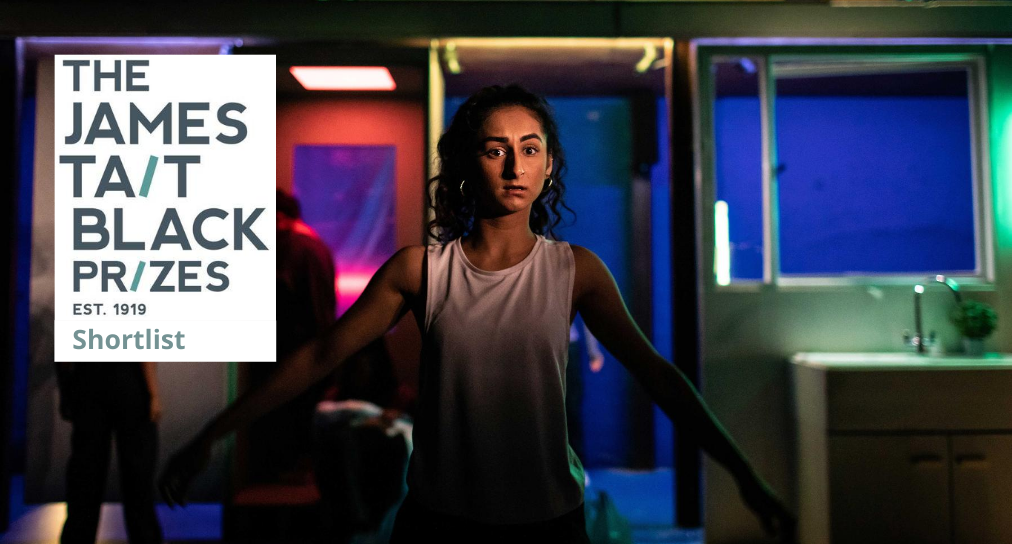
[BLANK] has been shortlisted for the James Tait Black Award for Drama 2020. The £10,000 prize is awarded to playwrights and celebrates new plays that demonstrate "an original theatrical voice and make a significant contribution to the art form". More than 80 entries were submitted for the 2020 award, the highest number of submissions since the award was established in 2012.
Clean Break and the Donmar Warehouse co-produced [BLANK] in Autumn 2019 to a sell-out run and rave reviews. Written by Alice Birch and directed by Maria Aberg the production was an experimental mosaic of 60 scenes of women and children effected by the criminal justice system. The scenes were selected from a compilation of 100 scenes illustrating fragments of the criminal justice system Alice Birch wrote after her time as resident writer with Clean Break. The offer to a director or production was to choose as many or as few scenes in order to construct their own narratives and make sense of the sprawling impact of the criminal justice system on the lives of women and children.
This year’s shortlist of 3 plays were all written by women. Also shortlisted is Yasmin Joseph, with her hit-play J’Ouvert which premiered last year at Theatre503 exploring the culture and politics of Notting Hill Carnival. Yasmin worked with Clean Break earlier this year when she created Inside This Box for the Young Artist Development Programme, which was then produced at the Clapham Omnibus and Arcola Theatres before a limited digital run in July.
The judging panel’s chair, Greg Walker, who is Regius Professor of Rhetoric and English Literature at Edinburgh, said: "This year’s astounding shortlist works with timely themes in exciting and fresh new ways. When considering the award, we ask our judges to nominate dramas that make them look at life a little differently, and this year’s James Tait Black nominees more than fit the bill in this challenging year.”
The winner will be announced in September, via an online ceremony.
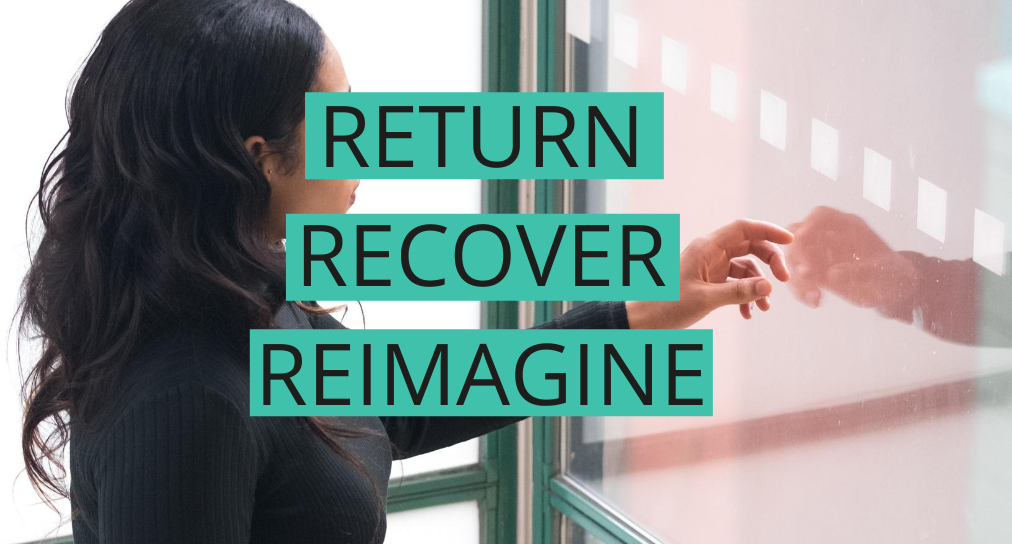
Our building in Kentish Town is more than a collection of offices and studios. For our Members, staff and artists, it is a safe haven and the centre of a vital community. Many of our Members have been vocal about how much they miss being together at Clean Break. With knowledge of this and of the difference it will make to their mental health and overall wellbeing, we have been putting energy and resources into reopening our doors to ensure a safe welcome back for them. It is with great hope and optimism that we announce we will be opening the building (in a socially distanced manner) to commence a Members Programme of theatre making and support from mid-September.
Throughout the summer, we have been engaging with our Members and women attending women’s centres via an online Programme. We take some comfort in the fact that we have extended our reach through Zoom and Vimeo offers, delivered by our women artists, beyond what we have the capacity for in the building. However, we know that there is no substitute for human contact, laughing together in a real space and the offer of a shared meal. We also know and understand that not all our Members will be able to return safely or feel comfortable enough to do so, and will therefore, remain vulnerable and potentially isolated. And so, we will continue to offer online workshops alongside our activities in the building to ensure that no one is left behind. We will also be inviting new Members to get to know us before stepping inside our building by hosting online information sessions – dates will be announced soon.
We have been offered extraordinary support from our wider network of artists, Patrons and friends during lockdown. We want to say a huge thank you to all the volunteers who have worked on our Creative Buddy Scheme; to those of you who wrote messages of support to women in prison as part of WRITE 2 CONNECT; and to our phenomenal Patron Zawe Ashton and our friend Polly Frame who have both given hours of their time to mentor our young artists. Not to mention the brilliant Maxine Peake, who presented our BBC Radio 4 Charity Appeal in June and helped shine a light on the experiences of our Members and the vitality of our programme to many new listeners. And to our amazing funders and donors who have been flexible, generous and considerate during this period, we say a special thank you. The support has been overwhelming, particularly from ACE, National Lottery Community Fund and some of our loyal trusts and foundations. But the need for help continues as the pandemic brings new challenges to our Members, and our resolve to create life-changing theatre grows.
A few weeks ago we shared our response to the killing of George Floyd and also writings from our Members about the impact of racism on their lives. Since then we have facilitated a series of online conversations - Reflective Circles - where our Members have talked together about how they are impacted, what their experiences are at Clean Break and what they would like to see us doing moving forward. As part of a clear strategy to step up and be actively anti-racist across our programming and organisational structures, we are listening and implementing what we learn.
Amongst the things we had to cancel when lockdown started was our programme of workshops and training for those interested in our unique practice, developing new skills, and gaining a deeper understanding of our approach. We have reimagined these offers and will deliver courses online later this year. Watch this space for more details!
And what about our audiences? We miss you! We hope that some of you were able to catch INSIDE THIS BOX, our young artists production streamed online for one week in early July, brilliantly edited by our partners Eastside Film. We hope you have also caught up with the blogs by a few of the 24 artists on our 2 METRES APART project, who have been collaborating online and continuing to invest in what is so special about Clean Break - the alchemy of our Members and the women artists we work with. We look forward to sharing with you the legacy of these collaborations at a future point when we can enjoy live performance together again. To this end we are currently working hard to confirm new dates in 2021 for the rescheduling of TYPICAL GIRLS by Morgan Lloyd Malcolm. This big, bold show with songs, co-produced with Sheffield and Soho Theatres was originally planned for this Autumn.
Changes have been immense for all of us since March 2020; included in this was bidding goodbye and thanks to our outgoing chair Kim Evans and a big welcome to our new Chair Alison Frater. As lockdown eases, and we begin to come together again in small ways – Clean Break continues to be here for our Members and all women who need us, our community.
We look forward to reimagining new ways that we can continue to amplify the voices and stories of those who are often unheard. The need for our work is as vital now as it has ever been.
Erin, Anna and Róisín
#ImagineAnotherWay
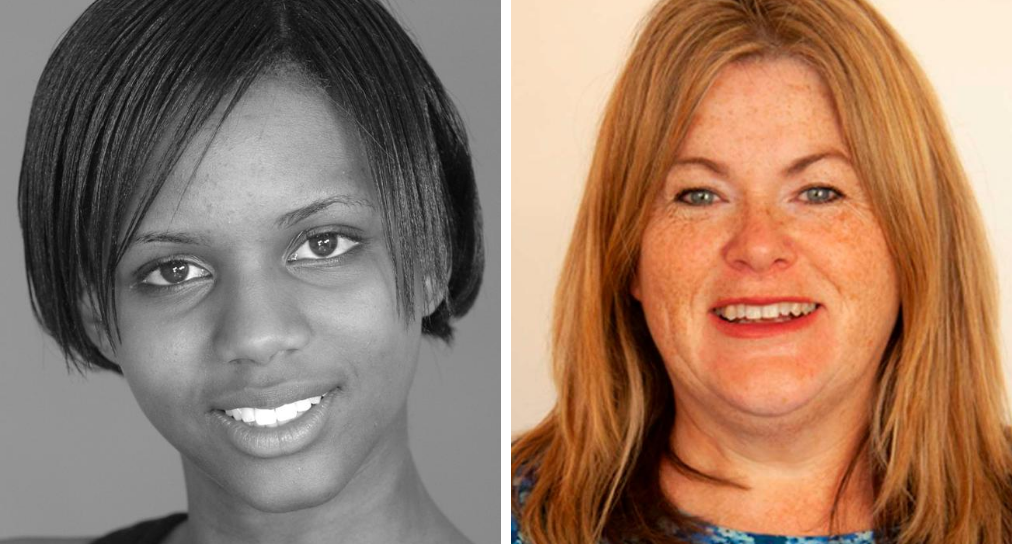
In our final 2 Metres Apart blog, Nicole Hall and Katherine Chandler look back over eight weeks of working together remotely.
I was excited, nervous, buzzing before our initial conversation. Having been offered a place on the project it was as though things became very real.
Although we didn’t know one another I felt an instant connection and Kath’s warmth, wit and compassionate nature put me at ease (we clicked).
The hour chat felt like 5 minutes and before I knew it, we were off the call and I was left with a mixed bag of ideas (buzzing).
Being a performer and having the freedom to do what I wanted with it without a pre written script and direction left me feeling like a little fish in a huge ocean (after flapping for a while, I allowed the flow to carry me).
The one thing I did know for sure was that we are a perfect match (thank you Clean Break)
I tried to go into the process with a complete blank page and yet the synchronicity was unreal. We both felt the magic of lockdown coupled with the comedy amidst the trials and tribulations was a great starting point.
On the second call we discussed our week and again it flowed, I felt the element of music (my first love) had to be in the mix. I’ve never written professionally but Kath made me feel at ease about it all as she referenced my emails as ‘writing’ (oh yeah. lol)
Through the struggle of life in lockdown, responsibilities and the lot there is a beauty which is hard to deny; love, compassion and a sense of freedom (when I allow it) when connected with likeminded people (such as Kath).
Third call, again things flowed there was laughter and banter etc – more of the same please!
Our last session was off of the back of me having had a tricky week. I felt a lot more solemn and could be nothing but honest about what was going on for me. Kath helped show me the positivity (she’s a real light) I felt the fear creep in with the feeling of ‘endings’ and Kath gave me a real 180-degree spin on it and suggested it was but a beginning to endless possibilities. Undeniably the experience is one to always treasure and has reignited that fire which had been dimmed (but always flickering) for a while.
Here’s to even more of the same (I hope) the next phase of 2 Meters Apart. To the whole of Clean Break, (Staff, Members and Artists) I thank you (from the bottom of my ‘cheese ball’ heart).
Over and Out x
Me and Nicole first met by phone. I was nervous about the first connection just because we didn’t know each other and I wanted us to get along. Nicole felt the same. We got along straight away. We had an hour chat. We’re both talkers. We had a laugh. Nicole is open and funny. We talked about who we are and what we are interested in creatively. Nicole has a particular interest in music and comedy and magic. Without knowing this I had already started to write a monologue about a woman stand up so I felt optimistic that there was a creative connection already bubbling.
We agreed to meet on Zoom the following week, again there were nerves - what if we ran out of things to say or something went wrong?
Again we talked for an hour. We could have talked for more. Zoom chats have become so everyday and if felt easy to communicate this way. Nicole has lots of stuff going on. We talked about lockdown, about our families, things we were dealing with. Our ‘everyday’ becomes the main topic of our chats. Our days, every days, ordinary days, extraordinary days, bad days, good days, getting through the days, Cardiff days, London days, sunny days, lost days. That feels like something to me. I don’t know what yet. I ask if in our next session Nicole minds talking through her everyday for me.
Between sessions Nicole emails me with thoughts. Sometimes things that have happened in her days. She sends me short YouTube videos of her performing magic. Flashes of who she is.
Our third session was more of the same. We still laugh and chat, I think we’re both open with lots of similarities and common ground and over the weeks we’ve got familiar with each other. Nicole makes me think about stuff. I value our hours.
The openness of the project has allowed us to take our time, see what happens, which can prompt a low level confusion for me that I’m not doing something right but slowly ideas begin to come into my thoughts.
In our last session Nicole talked about the end of the project and I suppose I hadn’t thought of it having an end. I feel like it’s a start. The thoughts, still unformed, are in my head. Stage 1. Phase 1. First wave. Pre-peak - Lockdown jargon.
Read our other 2 Metres Apart blogs:
Lucy Edkins and Sonya Hale
Funke Adeleke and Danusia Samal
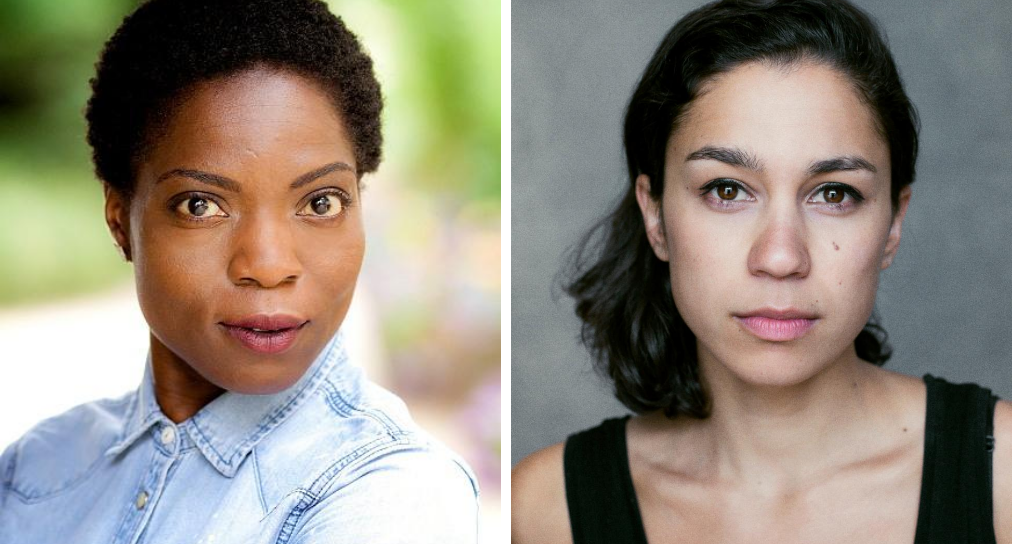
In our second 2 Metres Apart blog, Funke Adeleke and Danusia Samal reflect on the process of making art in lockdown.
It has been a cathartic journey working with someone as talented as Danusia. She has been helpful, constructive and suggestive along the way. Which in turn has helped to shape the way we’ve worked.
From our first chat we talked freely about our experiences in lockdown and how we are coping.
This in turn fed into our discussion about the things we’ve missed and what we yearn to get back to once the pandemic is over.
We discussed missing live music, performing and seeing shows.
This helped to form an idea of what we would like to put into our creation. We also talked about what has been happening to us as individuals and I told Danusia about my experience of living with a new flat mate and how they are truly disrupting my life.
She helpfully suggested different ideas about how we could go about creating something by the second week. The first being a website that we could use to exhibit the work we create.
We jointly decided to call it Vibrations, as in the feelings that we’ve been going through during the lockdown, both high and low.
In the next week, I started to write different poetry which I submitted for the website.
Then Danusia, suggested that we write monologues from the perspective of the two housemates.
I wrote from the male’s perspective and she wrote from the female’s perspective.
By the fourth meeting we had both worked on the monologues, redrafting them as necessary in the previous weeks, the monologues include music and spoken word.
Currently, I am learning both monologues to record them as a video which Danusia will edit cleverly and they will be on our Vibrations website.
Working on this 2 Metres Apart project has really helped to shape the way I work and ask questions as well as think about things I wouldn’t normally think of.
It has also shown that it is quite possible to collaborate with the aid of the technology that we have available to us nowadays, so although it isn’t the ideal situation. It can work.
It has been a joy to have something to fully focus my energy on as well as material for my acting showreel which is all very exciting for the future and can’t wait to share what we’ve been working on.
Funke and me had our first virtual ‘meeting’ in mid-May – a cathartic catch-up about our lockdown experience so far and the things we missed which Covid19 had snatched away: Theatre, nights out, live events. We’re both actresses and singers. We’d both performed in bands and although the previous year had brought less music to our lives, we both missed live music, singing, and being part of an audience.
You’d think it might be depressing to talk about this, but actually it became an interesting discussion on how we could regenerate that feeling, even if it was going to be a while before we performed anything live, or saw anything live.
It was in that spirit of ‘liveness’ that we let our first couple of sessions be chats about anything. Our week so far, what was annoying us… we also talked about what could we make and how we could be creative. I then compiled a list of some ideas based on what we discussed. You can see them below:
In the end we selected and merged a few of these. We created a website which could be a space to put our ideas. Then we started writing together. The piece is two sides of an argument - inspired by stories Funke told me about where she was living (don’t worry, it’s still a fictional piece!) Funke wrote a brilliant monologue from the point of view of a male flatmate and I wrote a response from the point of view of the female.
Since then, we have gone back and forth discussing and editing our pieces each week. How do they tie together? Who are the characters talking to? What is the journey? Funke is playing two very different characters with opposing perspectives on a household dispute. She is doing this brilliantly. Poetry and music will hopefully weave their way in too.
We are now at the stage of final drafts of our monologues, which Funke will rehearse, perform, and record in the next few weeks. I’m looking forward to then editing the two pieces together – using sound and music and video editing to tell this funny, familiar, and hopefully relatable lockdown story. We have both really enjoyed 2 Metres Apart and we are looking forward to sharing what we have made.
Read our other 2 Metres Apart blogs:
Lucy Edkins and Sonya Hale
Nicole Hall and Katherine Chandler
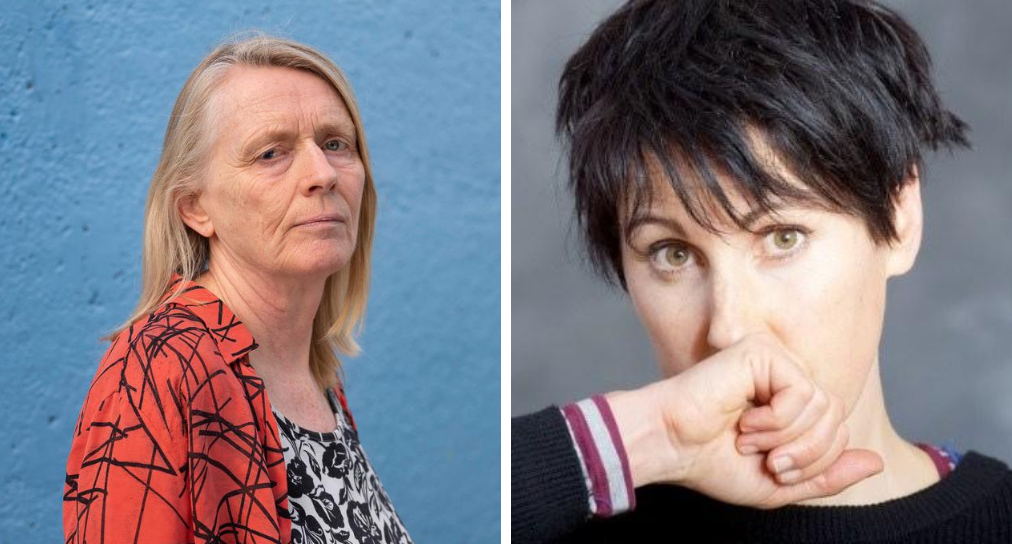
Over 8 weeks during lockdown twelve pairs of Artists met digitally as part of Clean Break's 2 Metres Apart project. It was a space to work creatively, share ideas, and see what arose from the process whether that was to co-write together, to each respond to a selected stimulus, or for one artist to write for their partner to perform. The project was focused on practise rather than product, providing our collaborators the space to explore and experiment.
In three blogs, we have asked 6 of our Artists to reflect on the process of this new way of working, published alongside their collaborator. In our first blog, Lucy Edkins and Sonya Hale share their experience of working together and the triumphs and challenges of making work under lockdown.
Mid April
A lockdown collaboration sounded like a lifeline to me. My two foster girls have just moved back in with their aunt after a total meltdown induced by lockdown insensitivity to their case from the powers that be. My son and I, enjoying the calm after the storm, were frequenting my little studio near Markfield Park so that we could have a change of scene and get into a bit of spray painting.
In the midst of producing silly self-tapes for adverts, writing up the answers to the Clean Break questions was a welcome slice of reality. In keeping with the self-taping, I filmed the answers in the studio kitchen while my son struggled with his home schooling and people worked around me.
Early May
A month after the girls left, I get an email to say I’ve been successful – it starts almost like a rejection, saying how many high quality applications they’ve received, so I was steeled for that, but very happy to get accepted, and later was pleased to see how many familiar faces I saw on the project.
Sonya seemed as keen as I was to get the ball rolling. We were emailing the next day and by Friday I was at a street party with kids doing sponsored runs for the NHS and bunting up for VE Day. After a comedy moment trying to answer my phone, I took the call around the corner away from the noise and we got chatting. Sonya was energised and inquisitive – her method was to fire off a lot of questions, some of which I could answer there and then, some of which I hesitated to share with the neighbourhood.
So, the next step was writing. I did my best to keep up. Essentially, we bashed out the idea pretty quick. Then it was a matter of responding in different media... I was creating a body of work in spray paints, inspired by my son’s enthusiasm for the medium and our creation of a character who did the same. We began by talking up the possibility of a short film idea. I would do a lot of the filming, create ideas for visuals, perhaps do voiceovers, and Sonya would concentrate on the written structure of the piece, the plot, etc.
Sonya worked by getting responses and pulling the various fragments together, always checking in to make sure I was happy with the process.
It became apparent that a short play fitted more into the expectations of the project and what we were able to achieve in the time given. Sonya got busy and thrashed out the results of our to-ing and fro-ing and I responded with a few little edits.
I think the blend of our voices was an interesting and stimulating process, and, given more time and commitment, could produce a unique and engaging piece of work. I hope Clean Break are able to continue to support these kinds of collaborations between Members.
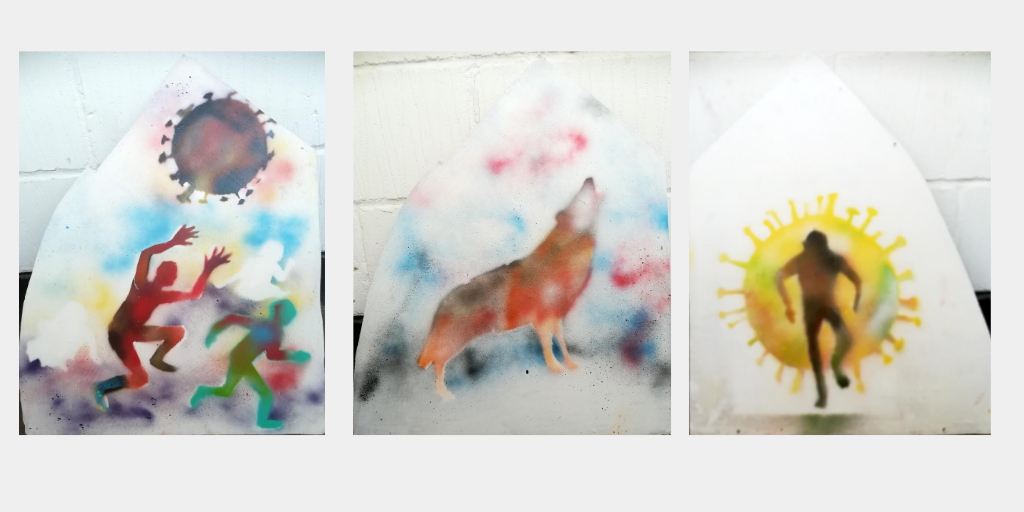 breathe by Lucy Edkins
breathe by Lucy EdkinsI was delighted to be asked to do the 2 Metres Apart project and even more delighted when I was partnered up with Lucy Edkins. I didn’t know Lucy but had, however, seen her perform in Inside Bitch at the Royal Court theatre and I was very impressed. When we got chatting we discovered we had many things in common; Lucy and I both have a ‘colourful’ past, we both have teenage sons and we are both interested in a variety of arts. Lucy, however, usually expresses herself through fine art while I more commonly write. Initially Lucy said she didn’t want to write but when I read some of her amazing work I knew she had to. Similarly, initially I said I didn’t want to perform. However, after discussion we both encouraged each other and embarked on a real partnership whereby we would both write and perform.
To start with we decided just to have fun creatively; we embarked on a game of artistic consequences whereby I would write or draw something and send it to Lucy who would respond by writing or drawing (or painting) something inspired by what I sent. We wrote and painted some great things. I had not painted since high school so it was an incredible experience for me. What emerged was a lot of wolves and moons and howling and also lots of references to the sea. Also, two strong characters started to emerge, namely Spray-girl and Tent-girl. Spray-girl was very much inspired by Lucy and Tent-girl was very much inspired by me. Lucy sent many images and ideas and I started to weave them together into a short story. Once we had the basic framework for the short story, we could start to shape some of the poetry that we had written in our game of consequences and chisel it into shape to fit with the tale we wanted to tell. Lucy wrote a lot of beautiful, exciting poetry so we decided to include a lot of direct address monologues in the piece. It worked really well.
Working with Lucy who is very creative but historically expresses herself in very different ways to me really encouraged a little artistic explosion whereby we both felt inspired by each other to work in different ways. I have not drawn or painted for many years and I felt very rusty when it came to this. However, our experiences like this in real life became fuel for events in the story that we wrote. In the story Tent-girl, like me, has never expressed herself artistically before and in the story we wrote, as in life, the two girls would never have met before if it hadn’t been for coronavirus but thanks to the lockdown situation they end up sharing a lot of artistic work and uniting on this.
This project, for me, felt like so much more than just a coming together to write a piece for a commission. Lucy and myself really worked as a partnership; we encouraged each other to express ourselves in new, unique and beautiful ways. We submitted the first draft of our little story and I hope that we get the opportunity to work together more in the future, to sculpt it and then perform it together. But more than that I hope Lucy and myself continue to encourage each other creatively, by continuing with our game of artistic consequences amongst other things, to see what else emerges for the future.
Read our other 2 Metres Apart blogs:
Nicole Hall and Katherine Chandler
Funke Adeleke and Danusia Samal
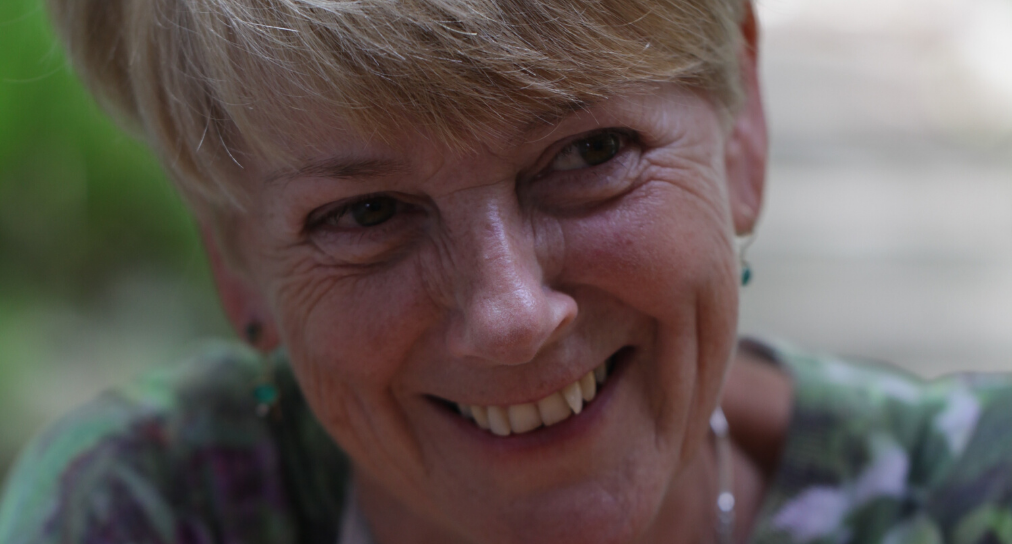
Alison is an advocate for the transforming value of the arts in the criminal justice system, and writes on arts, health, and justice in the scientific, medical and general press. She is currently Chair of the National Criminal Justice Arts Alliance, a trustee of Clinks and a member of the Transforming Lives Advisory Board, Prison Reform Trust. She is a visiting professor in the Department of Criminology and Sociology at Royal Holloway and a public health lead researcher on a probation based mental health study at UCL. Throughout her career, Alison has fought for women’s rights and held lead roles in public health working to tackle health inequalities. She’s been a senior leader in the voluntary and public sector, with positions including: Chief Officer at the Brook Advisory Centres; Director of Public Health in Bristol and in North Hampshire; Head of Public Health in NHS England (London).
Alison Frater: ‘Clean Break has reached out to connect with and raise women’s voices in the face of many crisis during an extraordinary journey to success as a leading-edge theatre company. As its new Chair, I know Clean Break will survive and thrive beyond the present pandemic. Theatre has sustained and changed me and I’m excited by the opportunity to stand alongside women who won’t be ignored and whose artistic and educational work inspires a personal and political agenda for change. The work of Clean Break reveals the causes of crime and the impact of a racially discriminating and moribund criminal justice system on individuals, their families and communities. I take very seriously the privilege of stepping into the shoes of previous extraordinary Chairs who’ve driven a fantastic mission to champion women’s lives and life chances through the advocacy and authenticity of theatre. I am especially grateful to Kim Evans who has been hugely welcoming and a great inspiration.’
Erin Gavaghan, Anna Herrmann, Róisín McBrinn - Clean Break’s leadership team: ‘We are delighted to welcome Alison as our Chair. We have had the pleasure of working with her over a number of years in her role as Chair of National Criminal Justice Arts Alliance and have witnessed her outstanding contribution to the Alliance as it has grown in stature, influence and ambition. She brings to Clean Break the inimitable combination of expertise in criminal justice, women’s issues and the arts, and we know that she shares our vision and our mission of a world where women are no longer criminalised but are able to fulfil their full potential. Alison has the tenacity, resolve and skillset as well as warmth and compassion which we believe will serve us well in the years to come post Covid-19, as we commit to rebuild better and differently.’
Alison takes up the position from 23 July, succeeding Kim Evans OBE who steps down from the role following eight years of service.
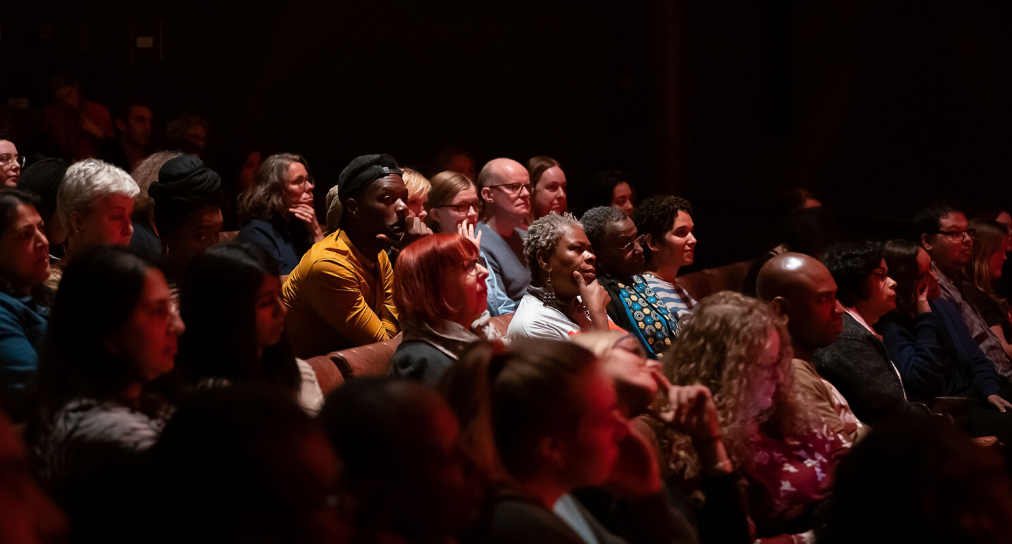
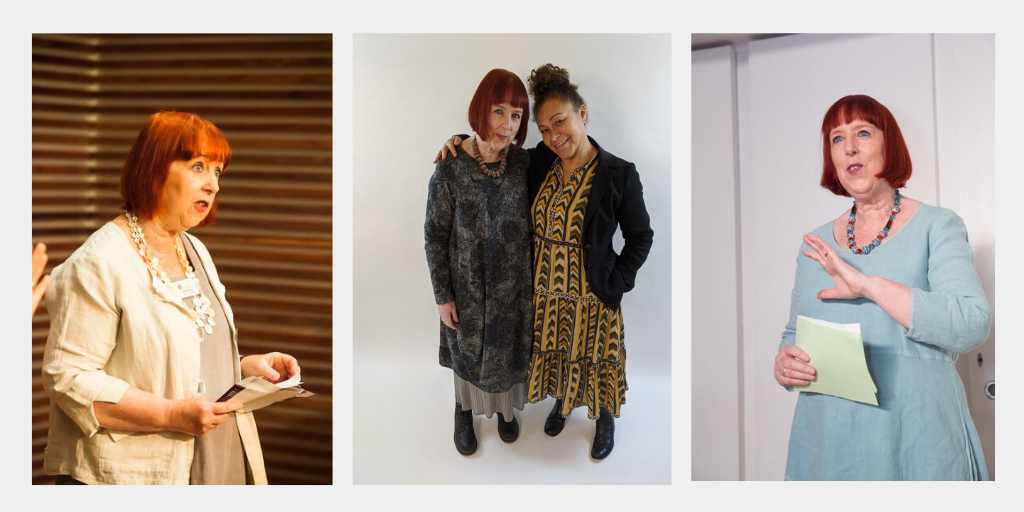 After 8 years of leading Clean Break, Kim Evans OBE is stepping down as our Chair. We have been incredibly lucky to have Kim at the helm for two terms, leading Clean Break through so many creative challenges and exciting moments.
After 8 years of leading Clean Break, Kim Evans OBE is stepping down as our Chair. We have been incredibly lucky to have Kim at the helm for two terms, leading Clean Break through so many creative challenges and exciting moments.
‘Kim has been a phenomenal Chair. She has steered us through significant organisational change and an incredibly tough external climate, with care, expertise and commitment. Her combination of leadership experience, her membership of the Parole Board, and her strong values and feminist beliefs, have been a perfect match. Kim has championed diversity and inclusion throughout her time, and her personal commitment to this helped drive our Board in increasing its representation, importantly resulting in appointing Clean Break Members to be at the table and share power. She encouraged us take up space, be brave and ambitious, and it is testament to her leadership that we have achieved significant growth, profile and reach over recent years. We wish her all the best in her next pursuit and know that this is by no means a goodbye as she will continue to be a friend to, and champion of, the company as we move forward with resilience, confidence and strong values as her legacy.’
- Erin Gavaghan, Róisín McBrinn, Anna Herrmann
This week we are taking a moment to celebrate her considerable contribution to the company by sharing a short video featuring excerpts from her interview with former Chair, Rachel Wyndham Wincott recorded earlier this year at our studios. The full interview was originally recorded as part of our 40th anniversary heritage project and will be available as part of Clean Break’s archive at Bishopsgate Institute in London from Autumn 2020.
Video by Chloë Plumb
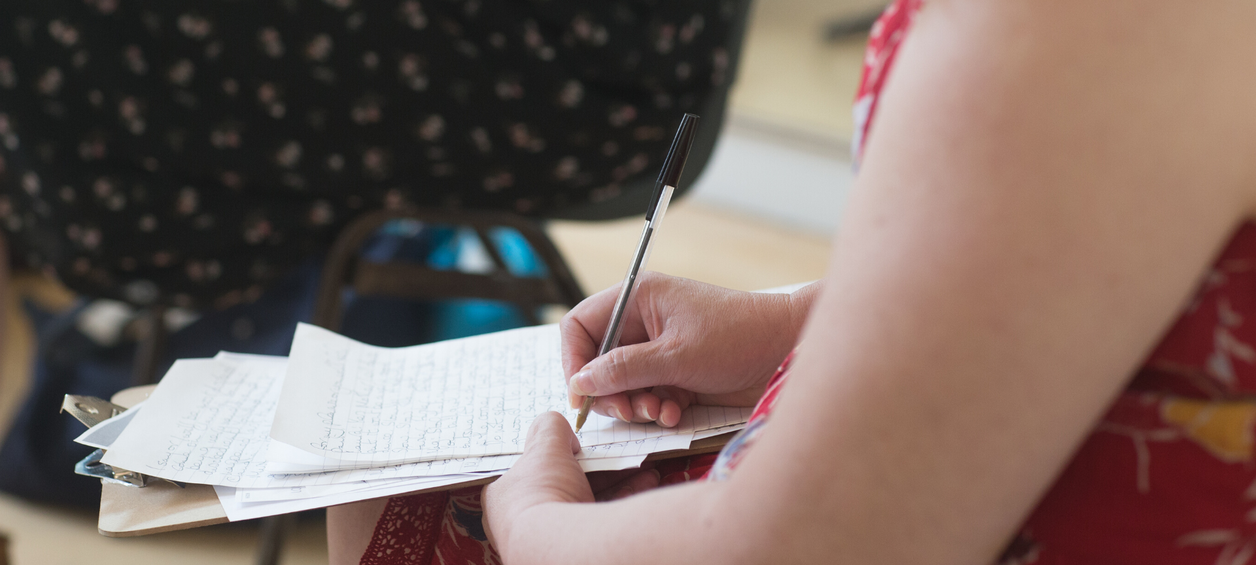
Earlier this year, Clean Break and It’s Not Your Birthday But… joined together to launch Write 2 Connect, a letter writing project connecting women through the prison walls with women in the community.
At the end of the project, Artist and Filmmaker Chuck Lowry worked with our Members to create a film to celebrate Write 2 Connect and the words of comfort, hope and inspiration shared from women to women. The film was originally created for Agenda and MIND's #womensidebyside conference.
There are currently 3,424 women in prison (as of 24 April 2020), many of whom are locked in their cells for 23 hours a day and whose visits, which can be a vital lifeline, have been suspended to stem the spread of the virus. This project has been devised in response to Covid19, and our desire to reach out to some of the most vulnerable in our society at this time.
For two weeks in May 2020, women from every corner of the UK and from all walks of life sent letters with words of inspiration, hope and solidarity to women in prison. The letters were about finding comfort in words and nature, things that inspired them and words of connection and solidarity. They all shared something personal and offered hope--a gift which everyone can afford, and which can remind us in difficult moments like the one we currently face, that we are connected, we are part of a wider community and we are valued.
.png)
Over 200 letters were delivered to HMP Downview. The women in HMP Downview then wrote their own letters in response which were passed on to women accessing services at women's centres..png) If you would like read some more of the letters from the project please click on this link
If you would like read some more of the letters from the project please click on this link
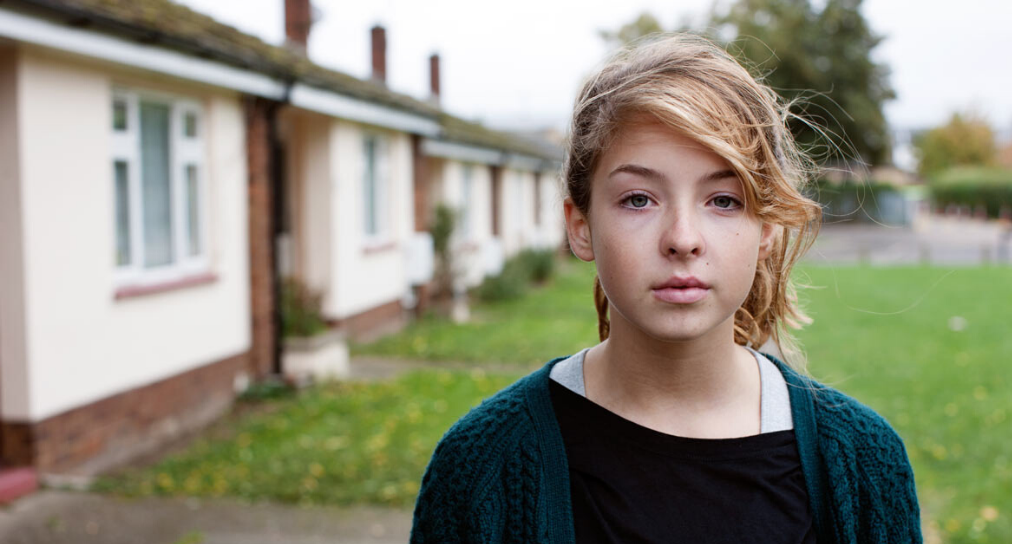
The Children's Society - Protecting children from being exploited by criminal groups
Inside This Box is a powerful production highlighting the harsh reality of life of young people who are coerced into criminal exploitation. It shows their vulnerability and the trauma they experience trying to deal with terrifying situations, often on their own.
Young people define child criminal exploitation as ‘when someone you trusted makes you commit crimes for their benefit’. This is the definition we use at The Children’s Society. It conveys well the key components of exploitation – a trusted person taking advantage of children’s vulnerability to deceive, control, coerce or manipulate them into criminal activity. This can include work in cannabis factories, moving drugs across the country, shoplifting, pickpocketing, or threatening violence against others.
Recently, child criminal exploitation has become strongly associated with one specific model known as ‘county lines’. This involves organised criminal networks exploiting young people and vulnerable groups to distribute drugs and money across the country through dedicated mobile phone lines, often from cities to smaller towns and coastal communities. ‘County lines’ is no longer a fringe issue, but a systemic problem reported in almost every police force in the country.
Children are being cynically exploited with the promise of money, drugs, status and affection. They’re being controlled through threats, violence and sexual abuse, leaving them traumatised and living in fear. For criminal groups, exploited children are a commodity they are prepared to sacrifice to avoid themselves being arrested by the police.
There are many signs that a child may be groomed for exploitation or is being exploited – from changes in behaviour to going missing, coming home with unexplained expensive gifts or looking anxious every time the phone beeps.
Sadly, our research report Counting Lives found that signs are too often missed or ignored and that many children remain under the radar of professionals who can help them until they are trapped in the cycle of exploitation. They might only come to the attention of services when they are arrested for possession of drugs, or excluded from school for their behaviour. Even then, questions are not always asked about why they are in this situation and they are treated as criminals and not offered help.
For girls who are criminally exploited, it may be even easier to fall through the gaps. There is not enough awareness among parents, professionals and in the community that girls may be exploited by criminal groups through county lines operations.
Any child can become a victim of exploitation, though Counting Lives shows that a combination of factors can put children at higher risk:
• Their vulnerability as a child, which can be exacerbated if they have additional needs like learning difficulties.
• Vulnerability created by society - for example poverty, experiences of discrimination, lack of opportunities, or the inability to access education.
• The lack of protective factors in a child’s life, including a lack of support from their family or the local community.
• The proximity or access a perpetrator has to a child.
COVID-19 can exacerbate many of these factors in the lives of children increasing the risk of them being targeted by criminals.
Exploitation never stops. Even during the current pandemic, when children and families have been forced to spend more time in their homes, there are concerns that exploitation has continued. Many vulnerable children have been at even more risk. Being away from school and spending more time at home has meant they have been ‘invisible’ to professionals who might have helped them, such as teachers in schools or youth workers. There are also concerns that more are being groomed for exploitation through online platforms as children are relying more on technology to stay in touch with friends and family, and to learn.
That’s why it is so important, now more than ever, that children are supported and protected. We all have a role to play in keeping children safe. As criminals are targeting, and trapping children in exploitative situations, it is the responsibility of professionals and everyone in children’s lives, as well as wider communities, to do everything they can to prevent and disrupt exploitation and protect children.
At The Children’s Society we work with children and families affected to help children stay safe. We also raise awareness among professionals and decision-makers of signs of exploitation and steps that need to be taken to disrupt it.
To help prevent criminal exploitation from happening, we need changes to the law to make coercion and control of children for the purpose of exploitation a criminal offence. We need to change systems that make children vulnerable, address poverty and provide the support they need.
Yet, the first step to making things better is something that does not require any policy changes. It is about showing young people that we care, that they can trust us and that we are there to support them to stay safe. Each of us needs to be more like the train conductor who our heroine meets in this play - kind, non-judgemental, caring and able to act on signs that a child is at risk.
For resources on how to identify the signs of criminal exploitation and what to do if you are worried a child may be being exploited, please visit www.childrenssociety.org.uk/what-we-do/our-work/tackling-criminal-exploitation-and-county-lines/county-lines-resources
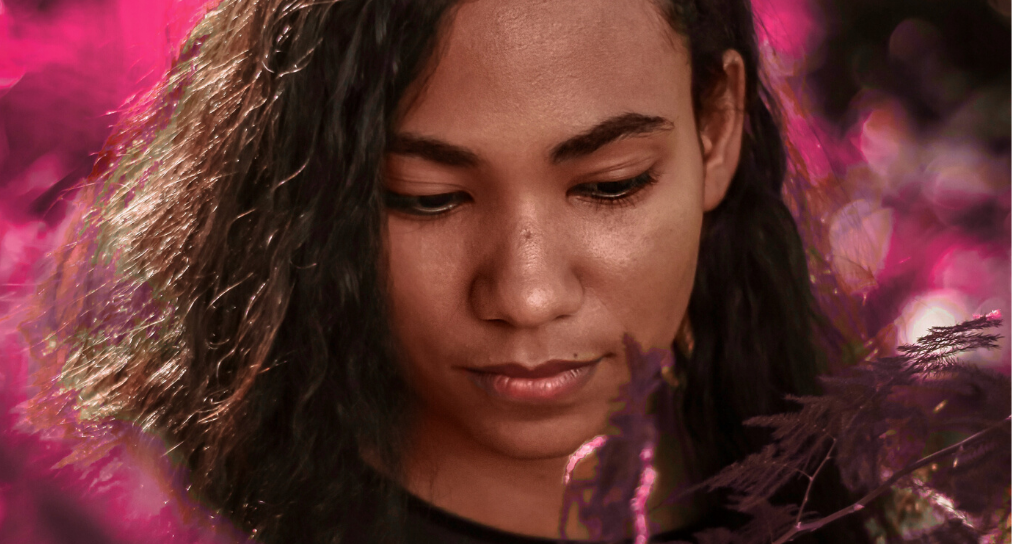
For many of us, the Coronavirus pandemic has brought problems in our lives into sharp focus. For girls and young women already feeling cut off or overlooked, this period has magnified the challenges they face.
‘Social distancing’ has explicitly asked us to keep apart. To avoid one another, not to gather together, form large groups or go to the kind of places that provide us with social support and contact.
For many of the girls and young women Agenda hears from, the challenges they have faced growing up – domestic abuse, mental health problems, poverty - can already leave them feeling isolated, abandoned, and not knowing where to turn for the help they need.
Early experiences of being hurt or let down by family, excluded from school or repeatedly moved between care placements, can be deeply unsettling. Sometimes, when help or interventions do come, these can lead to them feeling further disconnected from the lives they knew. Even when the environment they were living in before was tough, being torn out of it can be even harder, as Sheena told us:
"All my friends are in [my city]… like as much as like I didn’t get along with my family and whatever else, all my friends, everything I knew - I know every street in [my city], I know how to get [every]where."
Children facing greater disadvantage and poverty report feeling lonelier than others; 27.5% of children aged 10 to 15 who received free school meals said they were “often” lonely, compared with 5.5% of those who did not. And as they get older, girls report loneliness at higher rates than boys. Only a third of young women aged 16 to 24 say that they “hardly ever or never” felt lonely, compared with nearly half of young men.
Feelings of loneliness are likely to be exacerbated for young women with other marginalised identities, including LGBTQ girls or Black, Asian and ethnic minority young women, for whom loneliness may also be associated with experiences of discrimination. In the context of events such as the tragic deaths of George Floyd and Belly Mujinga, and subsequent Black Lives Matter protests, it is likely that reminders of the grave inequalities some groups of minoritised young women face could leave them feeling particularly isolated.
There can be stigma or embarrassment associated with admitting to feeling lonely. For young women already facing social stigma – perhaps relating to being a young mum, being in trouble with the police or experiencing problems at home – the shame they might feel may stop them from describing how they really feel.
Being hurt or having their trust betrayed by those meant to love them - like family or intimate partners - can leave young women traumatised and have a profound impact on their ability to trust others. Which is why – when young women need help - being able to develop positive trusting relationships with adults and peers is critical. And why having had limited access to that kind of support during lockdown has been even harder for some.
Rebecca, who was exploited as a teenager by people she thought of as her friends, told us about the importance of being able to get support from a specialist young women’s service, and how vital this was to combating her isolation.
"I’m 26 now but I still need support. I’ve got no family support and no friends really, so the support workers here are the only support I’ve got."
The government recognises loneliness as a condition that should and can be challenged. This acknowledges some of the ways in which women might be affected – as carers, if they face language barriers, or if they’re in prison and separated from family. But this doesn’t go far enough to understand the specific challenges younger women might face.
Too little attention is given to the reality of young women’s lives, particularly for girls who are most marginalised and too quickly overlooked. Which is why Agenda has launched Girls Speak to hear more from young women and the services supporting them, to help develop a better understanding of the challenges girls face and find solutions to improve their lives.
We know that young women themselves hold many of the solutions to the problems they face – like getting the support they need to combat the loneliness they can face - and we look forward to continuing to hear from young women like Sheena and Rebecca as we do so.
To find out more, or to be part of Girls Speak please contact jessica@weareagenda.org or see https://weareagenda.org/girlsspeak/
Jess Southgate is Interim CEO of Agenda, the alliance for women and girls at risk. We exist to ensure that women and girls at risk of abuse, poverty, poor mental health, addiction, homelessness and contact with the criminal justice system get the support and protection they need.
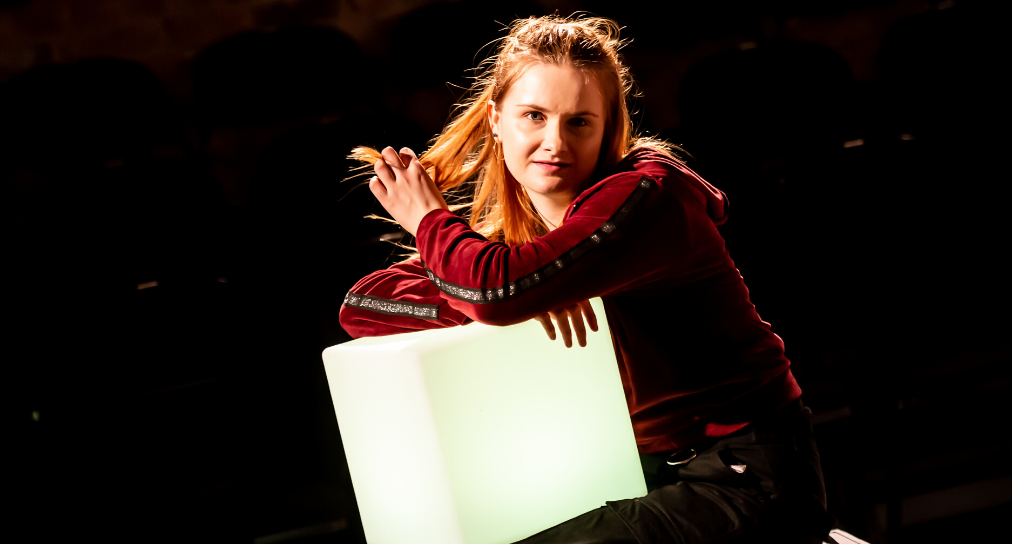
In Spring 2020 Clean Break's Young Artist Development Programme worked with Eastside Film Crew (a programme to develop young filmmakers aged 18-25) to document Inside This Box, a play by Yasmin Joseph, directed by Stef O’Driscoll.
Eastside Film Crew (EFC) is an initiative which aims to create professional film and editing opportunities for young people aged 18-25 years old. The crew of up to 10 young people, have the chance to work on professional briefs, trying different roles from camera operators to editors, learning valuable skills and a portfolio of work on the way over the course of a year. On this project they got the chance to film and edit a live theatre show for the first time.
Both Clean Break's and Eastside's team were women only and the young women from both organisations had the chance to meet and speak with each other, connecting on the themes involved and why they both wanted to get this work seen by a bigger audience.
Young artists from Clean Break and Eastside have written blogs about the project. You can read more about the experience of one of the Eastside Film Crew, Sade Briggs, here and Clean Break Young Artist, Chloё Florence's interview below.
Tell us about your connection to Clean Break
I’m on the Young Artist Development Programme.
Tell us about Inside This Box
It’s a Play that follows Alex, a young vulnerable homeless girl, as she navigates around a city that never seems to be on her side. She finds hope and home in her little sister and follows a path to try and change her fortune for good.
How did you find the experience of collaborating with other artists, creatives and filmmakers on this project?
Amazing - I felt so supported. It was really nice to work with other young people and not feel so isolated and alone in making art. It was hard work but enjoyable, I had so much fun, a very rewarding process.
What do you think Inside This Box says about the pressures facing young women?
That there are so many pressures put on young women specifically and lack of support when they need it. That it’s hard for young people to know who to trust, when they are betrayed constantly by people who are supposed to be helping. That they therefore hold a lot of pressure and responsibility on themselves.
How has the world changed for young people since you first performed Inside This Box?
The Pandemic. For young people like Alex, the pandemic is literally a death sentence. More people are facing having to stay in abusive situations or/and be forced onto the streets. People who don’t have a ‘home’, can’t stay ‘home’.
There are now fewer opportunities and less hope for young people to get out of negative situations because the world has literally stopped.
When we performed Inside This Box, London was a city that never slept. Now, it sleeps. If you have nowhere to go, there are fewer survival options than there were before. Services that help people like Alex are being stretched even further. The hope has been taken away for many young people. It feels like a different world now.
Are the themes still relevant?
The themes are 100% still relevant. They just exist in a city that has changed which offers up a different set of problems for someone like Alex.
What do you see as the biggest pressures on young women in risky situations?
From my experience, I feel one of the biggest pressures on young women in risky situations is they feel like it’s their fault. Their problem to fix; they blame themselves and there’s lack of access to support which leads to isolation. This in turn negatively impacts their self-worth and mental health. Which then can lead to exploitation, abuse, and all sorts of other pressures from dangerous people in order to help them fix their problem. These pressuring situations then become the only place they can find belonging, hope, worth and purpose.
How do you think projects like Inside This Box help to address youth loneliness and to find a sense of belonging?
I think they help by bringing young people together to help find their power, voice and feel part of something collaborative where they are not alone. It’s important for young people to know they are not alone. They might feel like they are the only person suffering in their world but there are thousands of people going through the same thing. It’s not their fault. Projects like this address those issues and bring audiences closer to those people in those isolated situations and show young people that they aren’t alone.
If you could imagine another way, what could the world look like for the character in Inside This Box?
In an ideal world... Support there for Alex without her having to ask for it. The Council gives her a council flat near her family as soon as she needs it. With money / grants to fund it until she is fully financially able to pay for it herself. Support Groups - for her mental health and career. Friends that care for her. A world where she can breathe, that is there for her without chasing it. A world that feels like everyone is on Alex’s side, not against her. A world where she can just be at home with her sister.
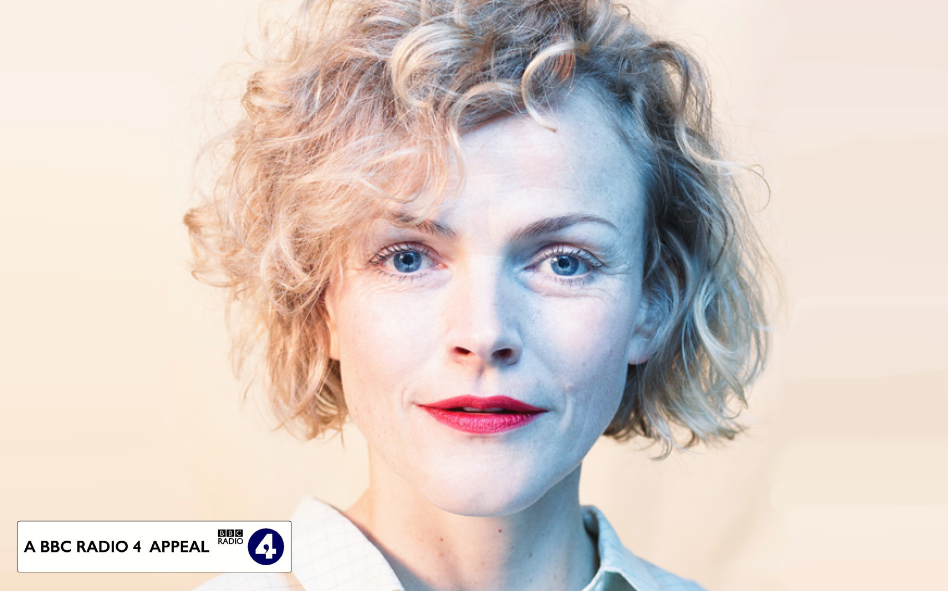
Maxine Peake will be presenting our Charity Appeal on BBC Radio 4.
Tune in on Sunday 21st June at 07:54 and 21:25 then again on Thursday 25th June at 15:27. Click here to listen.
In this current crisis the demand for Clean Break’s services has increased. This appeal will help us to raise vital funds to support our Members during this particularly difficult time; providing a support line, care packages and broadband devices to help women meet their essential financial, medical and social needs. They can also access the therapy and theatre courses which are now available online.
Our Presenter Maxine Peake
Maxine Peake is a stage, radio, film and television actress with many of her roles exploring the different facets of the criminal justice system. Here she shares why she supports Clean Break and believes in our work.
The appeal will be aired on Sunday 21st June at 07:54 and 21:25 then again on Thursday 25th June at 15:27. Click here to listen.
The appeal is now closed, but if you would still like to make a donation to support our work, please click here.
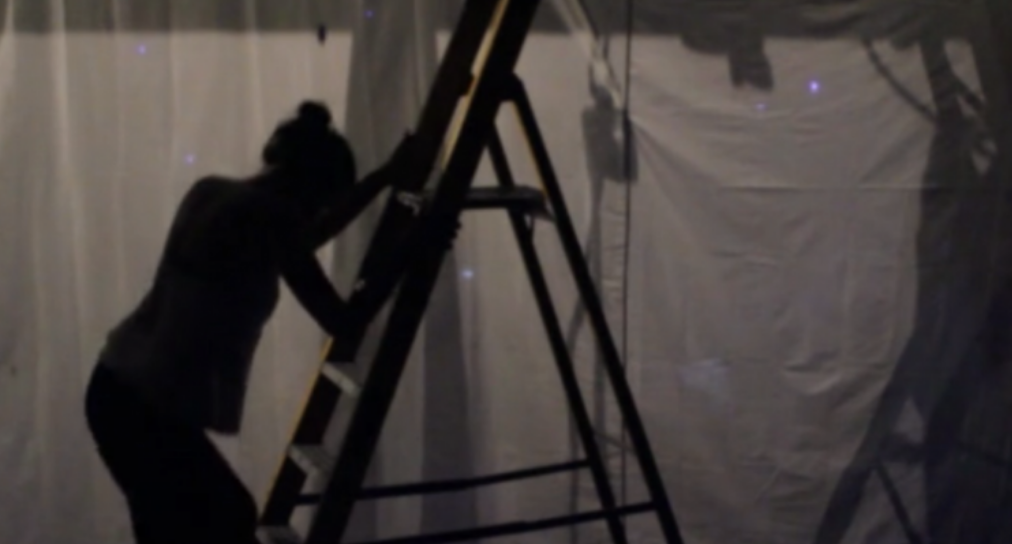
Clean Break is part of a sector-wide initiative to set up a Freelance Task Force, as outlined in the Open Letter to Theatre and Performance Makers.
The aim of the Freelance Task Force is to strengthen the influence of the self-employed theatre and performance community. It will create ongoing points of connection between freelancers, organisations, funders, and government and amplify the voice of the self-employed in the conversations to come about how we manage the response to and recovery from the Covid-19 crisis in the performing arts sector.
We are delighted to be working in partnership with Theatre Rites to support two freelance practitioners, on a part time basis, to be involved in the Freelance Task Force.
We wanted to make a clear statement about why we have not done an open call for applications.
At the time the scheme was announced, neither organisation felt we had enough funds to support a freelancer for the full 13-day commitment required by the Taskforce. However, at a late stage it transpired that a job share was an option and we joined forces with Theatre Rites who were in a similar position to us. We wanted to work with an artist who has worked with Clean Break before so she could speak to our Members as part of her network of engagement for the Taskforce. A very tight time frame, coupled with a majority-furloughed team meant that we were not able to share an open call with our artist pool, but instead decided to identify clear gaps in terms of freelancer roles within the existing Taskforce.
As a result, we have offered the job share to Puppet Designer and Maker, Naomi Oppenheim (Theatre Rites) and Designer, Rosie Elnile (Clean Break).
We are delighted to be involved in the scheme and hope to learn about how we can improve our working practice with freelancers in the future.
Thank you to Rosie and Naomi for taking part and to Fuel and ETT for spearheading.
This week has seen a global protest against the unlawful killing of George Floyd by the police in Minnesota, USA. We have seen widespread anger and hurt and a demand for action and change from people all around the world. Individuals and organisations across the UK have acknowledged the need to fight for justice and to ensure anti-racism lies at the heart of their work moving forward. At Clean Break we have pledged our own commitment to anti-racism and will strive to continue to shine a light on the presence of racism and discrimination within the criminal justice system and the need for change.
We asked some of our Members to respond to this moment through the lens of their experiences of discrimination in and around the UK’s criminal justice system. Ann, Beverly, Fatima and Sandrine shared their stories in a very personal way.
Please note that these stories contain potentially distressing material for the reader.
By Ann
I knew George Floyd
Back in the eighties, we were close friends. Full of life, love and laughter. We had a beautiful naïve hope. Content to be in a world we thought was promising us endless possibilities. The harsh reality of how our life would almost inevitably unfold, hadn’t quite hit us yet. The phrase “systemic/institutional racism” hadn’t even been coined. But make no mistake, it was/ is real.
I knew George Floyd
She died in police custody. Not even out of her teenage years. I saw her on the day she was to die. She was planning to spend the afternoon with her young son. Excited at the prospect, she decided to go to town, and shoplift some goods to sell. She was planning to take him out and buy him some gifts. She lived a life, that maybe you would not understand. A product of her environment, some would say. A teenage mum, in and out of prison for petty offenses. Brought up on a notorious predominately black council estate. In foster homes for most of her short life. Crime was the only way she knew how to escape the poverty that surrounded her.
I knew George Floyd
A social scientist would have a field day studying her life. Her young son already in care like his mother before him. Would they have known she had a heart of gold? A zest for life? No amount of trauma she had endured, ever dampened her spirit. This beautiful young black female, may have been a petty thief, known to the police and the justice system. Yet she was also a human being, with dreams and aspirations like all of us. She was happy in the only world she knew.
I knew George Floyd
The “justice” system, which (still) comprises mainly middle-class white men/women, coming from an opposite perspective, a different world view, never actually saw her. She was treated in death the same way she was treated in life. Killed in police custody. During the “investigation” I was told she had hung herself. Told by the very same police who diligently removed, on a daily basis, all potential possessions that could harm anyone. Belts, ties and coat cords were routinely taken away, and given back when released. A police officer who interviewed me during the inquiry, stated her death would be called suicide. In a cell, that he agreed, had no possible means in which to hang yourself.
I knew George Floyd
In the coroner’s report the boot-prints that were found on her face and clothes, were never explained. Bills have been passed, laws have changed, but the heart of man has not. There have been many George Floyds before my friends murder, and tragically, probably many more after. The justice system is broken in this world. My hope is in a God who will judge what man will not. Jesus take the wheel.
Listening to the radio presenter and guest gush over the 'timeless image' of the current Monarch on a horse. I see another 'timeless image' l am not able to let go of - the still at the beginning of the video detailing the murder of George Floyd through extreme aggressive state representation. One member of our human race ending the life of another human being. I'm not going to watch the video, and perhaps (as well as the need to shield @home) that's why l'm not amongst others outside the US Embassy demanding justice that leads to peace.
In the days since the British Transport Police (more human beings) closed the terse investigation into the assault on Belly Mujinga leading to her Covid-19 related death. I'm not getting a sense of justice and the peace lacking in my heart and mind is manifest in protestors worldwide.
These days of systemic discrimination within our institutions that are here for our protection; is that right? Have l misunderstood? These days of relentless unconscious bias are a culmination of centuries of one set of humans with greed, status, and easy living in mind (in my opinion) stating with absolute authority that the people with different skin colour sitting on natural resources that hold, potential prestige for you and yours back home are not just different they are a different race. A lesser species therefore... 2020.
It takes real desire to change, to actually see another person as another person equal to you. Not above or beneath, you, equal to you. I am using the pronoun 'you' intentionally, the second by second, hour by hour, day in day out, work you need to willingly engage in (reflecting on outcomes regularly) to effect the changes that have justice leading to peace as the consistent natural outcome for you and all of us. This is what l want to see; what about you?
With the protests that are alive now, l am feeling real hope (thank goodness cos Minister Hancock understanding #BlackLivesMatter, numbed me) that, more of us are willing to do the work of transforming systems in society that are not working justly for all of us. My biggest complaint is that l don't feel people, other humans enough of us are willing to do this transformative work, that begins with looking within yourself to assess how have l contributed to the situation, am l ok with my efforts to date, and what can l do in this moment to create value for myself, and others, with aim being justice that leads to peace?
People protesting at this time all over the world, tells me, compassion and empathy are ALIVE, and that humans can get it - they don't have to have the lived experience of being handcuffed lying on your front arms pinned behind your back, whilst another human being (empowered by the state which is paid for by you) pushes his full body weight on to your neck as you lie unable to protect yourself and are murdered as a consequence of.
I can't look at these recent present moments of state/government representatives killing - through decisions based on hidden discriminatory values- with impunity without referring to our 400+ years past. And so yes l see l am going round in agonising circles in my heart and mind-the micro, and l see the same in society-the macro.
I'm back to where l began, one of these timeless images is soothing and pacifying, the other, helps, l hope, break the cycle of incomplete humanitarian revolution within our criminal justice system within our institutions that need to develop total respect for the dignity of all lives, yet, for at least the next 100 years emphasise the #BlackLivesMatter, cos we all need - supported by law - to find ways to make these words our reality.
“Stop. I can’t breathe! “-George Floyd, dying words of latest police murder victim in USA, 2020 Ignorance allied with power, is the enemy of justice. (James Baldwin)
Dreams and memories: police abuses of power
Whilst studying at Tottenham college, I dreamt our college disco was raided by police, with all jumping through windows to avoid police arrest of youths dancing, enjoying themselves. I recall waking in terror, sweating, unable to breathe!
This was nothing compared to my feeling, hearing that my dream had come true; my best friend jumped through a window fleeing police arrest and brutality she witnessed. The US police murder of unarmed black man, George Floyd with hands up saying, Don’t Shoot, reminds me of police slaying of Mark Duggan in North London culminating in ‘The Hard Stop’, documented in film by George Amponsah (2016). Armed police were witnessed shooting unarmed black man Mark, contrary to Metropolitan Police allegations of him dumping a gun. UK inner city uprisings: socio-economic, legal and political inequalities Urban 1980’s uprisings in Brixton, Toxteth and Manchester were documented in films:
Blood Ah Go Run (Dir: Menelik Shabazz), examining the inequalities in socio-economic conditions: housing, wages, inequalities before the Law and the CJS. Time and Judgment (Dir: Imruh Bakari) records injustices meted out to the Afrikan-Caribbean community systematically criminalising Black youth.
Comparing experiences globally, I found evidence of sustained police brutality, terrorisation and complicity in Black deaths in police custody and police house searches. What of police legacy: killing innocent unarmed women, whilst supposedly searching houses for Black men: Cynthia Jarett in North London, and Cherry Groce in Brixton, one killed, one maimed? Police investigating police has on balance proved ineffective: examining the New Cross Fire investigation: where 13 Black teenagers died in a mystery fire whilst celebrating Yvonne’s birthday, yet nothing was said. Peaceful marches protested what the Black community perceived as a ‘racist attack’ in a known National Front racist area, New Cross, South-East London. Having agreed the route of the march, police then tried sabotaging the outcome, Attacking peaceful unarmed marchers hoping to provoke violence, but marchers chanted:
‘Thirteen Dead. Nothing said! What do we want? Justice! When do we want it? Now!
Conclusion: Film and music documenting inequalities in CJS, US & UK Activist, Spike Lee’s enduring film message, Do the Right Thing, seeking an end to police brutality could have been filmed in 2020, instead of cataloguing African-American deaths at the hands of racist police officers. Oprah highlighted on her TV show, a video recording of Rodney King brutalized by police saw no appropriate action brought against officer(s) concerned. Junior Mervin’s song, Police and Thieves still rings true now. ‘Until the philosophy that holds one race superior, and another, inferior, is toppled…abandoned, everywhere is War! (Bob Marley song, War). LOVE conquers hate, fear and ignorance, bringing healing and transformation. I envision ‘justice flowing down like a river’, Dr Martin Luther King Jr.
First of all my deepest, deepest condolence for the GEORGE FLOYD family
I am going to speak emotionally and from my heart
It is fucking inhumane the way we treat black bodies
I am so fucking sick and tired of trying to convince people (white people specifically) that racism is fucking alive and well.
you know what
fucking good for you for not being able to see colour
well done for not noticing a security guard following me around shops and supermarkets.
well done for not noticing young black men being stopped and frisked constantly just because of how they are dressed.
I am honestly so sick and so tired,
God I am really tired.
I can’t master the sound
the words
my brain
My throat
to expressing what I feel
Every time I open my mouth all that comes out is an animal sound
a Howling
I am howling!
a hyena sounds
I am the hynena
I fear for my
For my brother, for my sister who have yet to be grown
How do I protect them
how
how do I make it better?
how do I hide them from the system that is determined to claim them before they have grown?
I
Must take arms
in this war
I
am determined
I
...
The anger must be eaten and suffocate deep into my bones rest I burn the world down
I must numb
I must
Must
Must numb all this anger and pain in fear of suffocating myself
This what black people must do every time one of us is shot, put in a cage or humiliated for the fun of it by the system.
…..
what I am told I must do as an individual by society
1) It must be my responsibility to get justice
2) I must be obedient
3) I must wait for nothing to be done by “the judicial criminal justice system”
4) I must be thankful that this time there was video that showed the truth
5) I must
6) I always must
….
I
am
Will not
l
Will
stop now
I will rage until I am heard
I will be motherfucking seen
I will provoke until we start getting somewhere
until I am treated the same as my white friends
I will begin burning the world down one corner at the time until something new grows on scorched ground
Something must give and it will not be black people that give
We have given you enough of our sons and daughters
We are the new generations and we are not afraid to take hostages in this war
Seeing as you choose violence as your weapon of choice
Dear our ancestors
Dear our foremothers
We call on you
We call on you our foremothers
We on your children
We call on our continent
We call
We call
Lead us into this battle and may we succeed, Amen
With our thanks to Ann, Beverly, Fatima and Sandrine.
#BlackLivesMatter #BetheChange #ImagineAnotherWay
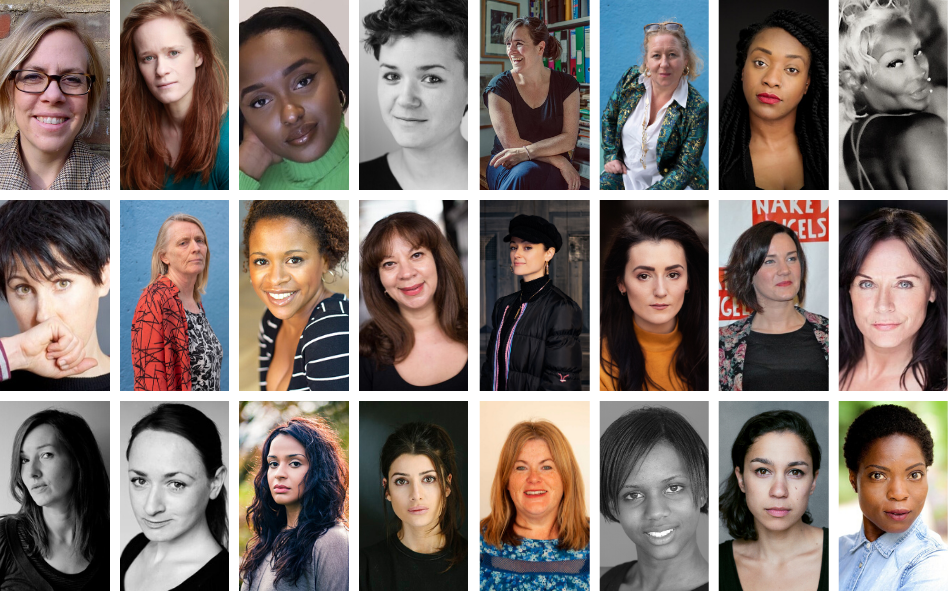
Led by our commitment to the alchemy between Artists and our Members, we are pleased to launch a new project, 2 Metres Apart, the joint commissioning of twelve writers from our artist community and twelve of our Member artists.
The twelve artistic collaborators are:
Over the next 8 weeks our twelve pairs will meet digitally to work creatively, share ideas, and see what arises from the process. They could choose to co-write together, to each respond to a selected stimulus, for one artist to write for their partner to perform. Working on the understanding that both Artists’ skills and lived experience are equally valued, the pairs will work as collaborators on equal footing to explore what creative partnership could look like. The project is focused on practise rather than product, providing our collaborators the space to explore and experiment. We have chosen not to focus on outcomes but to bring people together and maintain our commitment to nurture, employ and extend artists and our Members.
3 pairs of Artists have written blogs about the experience. Read them now:
Lucy Edkins and Sonya Hale
Nicole Hall and Katherine Chandler
Funke Adeleke and Danusia Samal
Click here to read the full press release.
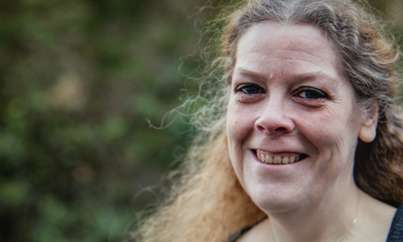
Clean Break is proud to announce the inaugural Helen Pringle Award, an annual award in memory of our dearest friend and colleague, Helen Pringle, who died on May 14 2017 at the age of 50, after living with cancer for a number of years.
Helen worked for Clean Break as Head of Finance and Senior Producer, from September 2001 until three weeks before her death in 2017. Helen’s own values, her commitment to social justice and to women’s empowerment and her love of theatre were strongly aligned with Clean Break’s company values. Her contribution to the organisation over the decade and a half she worked here helped lay the foundation for our new business model and is ever present as we weather the current storm of COVID19, particularly her pragmatism, optimism and belief in working together which live with us day to day. We have long since intended to honour her life, commitment and passion with an award, and are now delighted to do so, to keep her legacy alive.

As well as being a massive theatre lover, Helen believed profoundly in the need for change in the industry – to ensure that women with a criminal record, women facing discrimination, women living in poverty, and women with mental health needs or in recovery from addiction had opportunities to become part of the industry themselves. It is with this in mind that the Helen Pringle Award will be open to Clean Break Members past and present on an annual basis offering a £1,000 bursary to support a woman in her Further /Higher Education studies in a related field, and a mentorship by one of Clean Break’s artistic community.